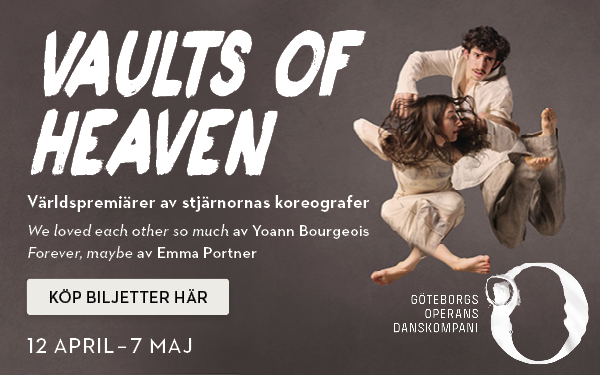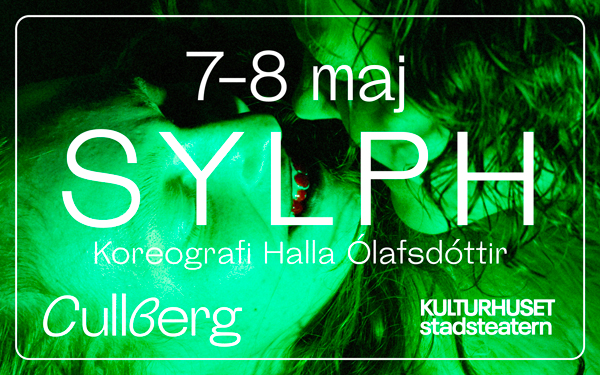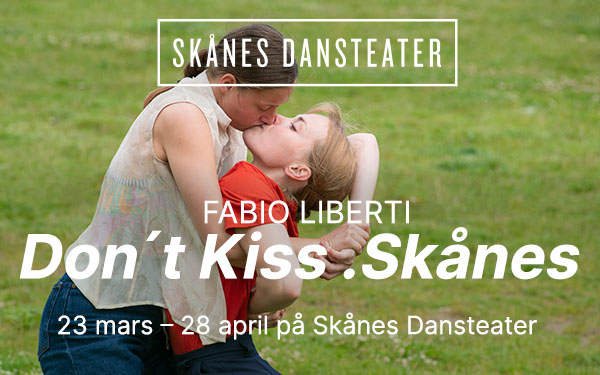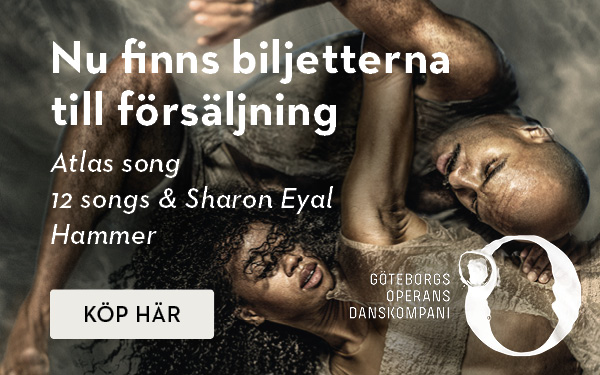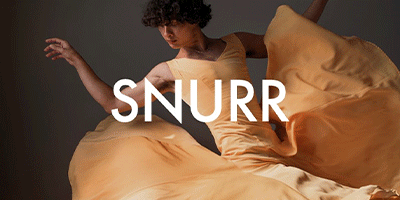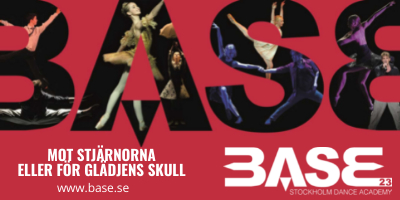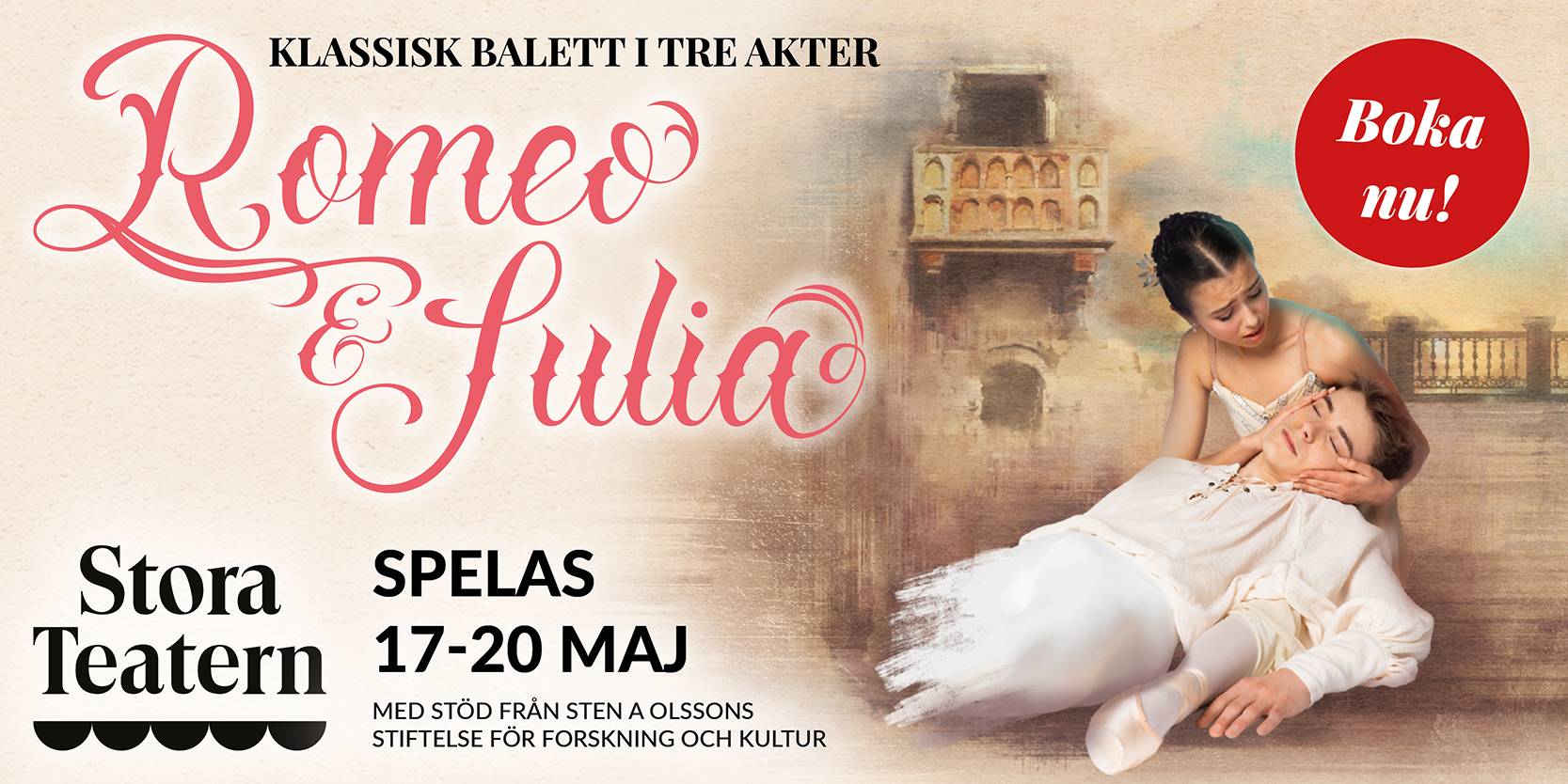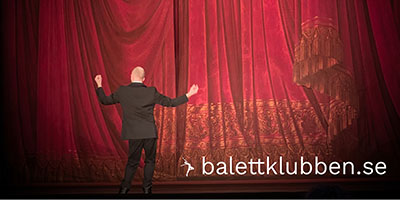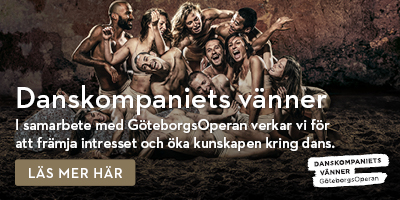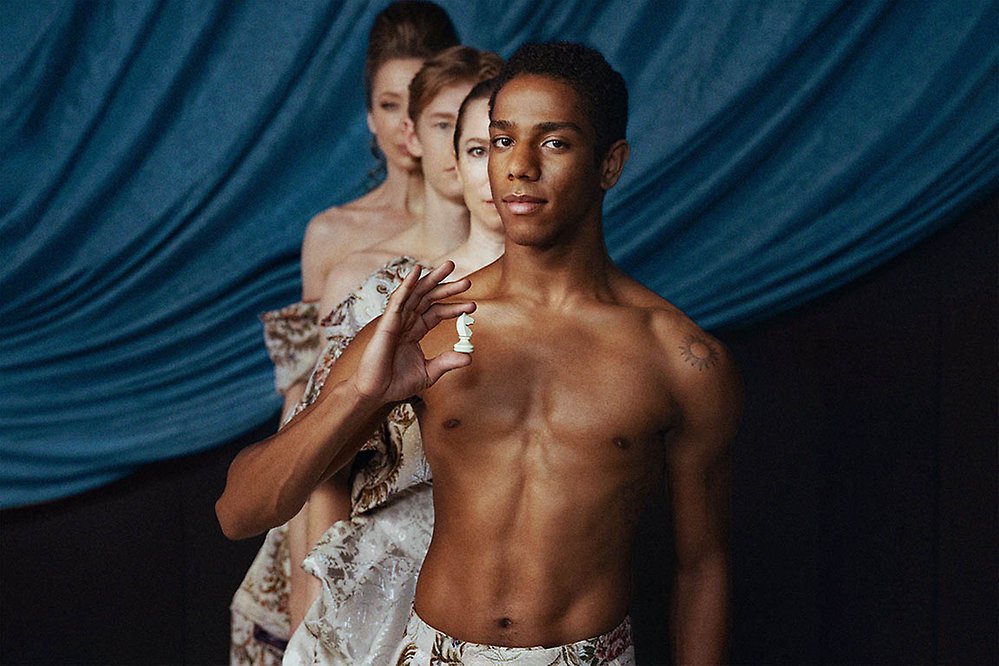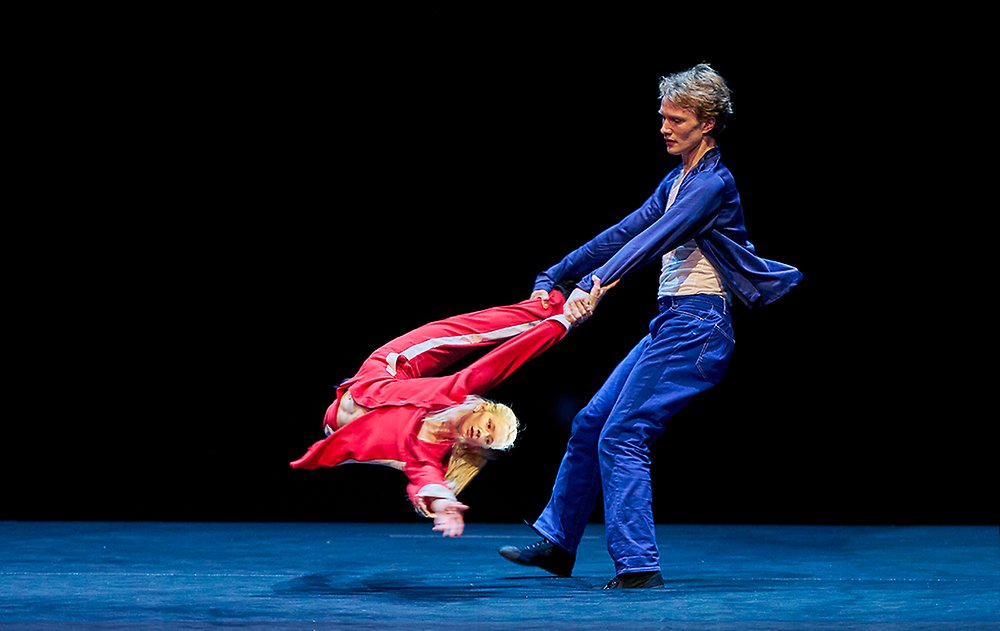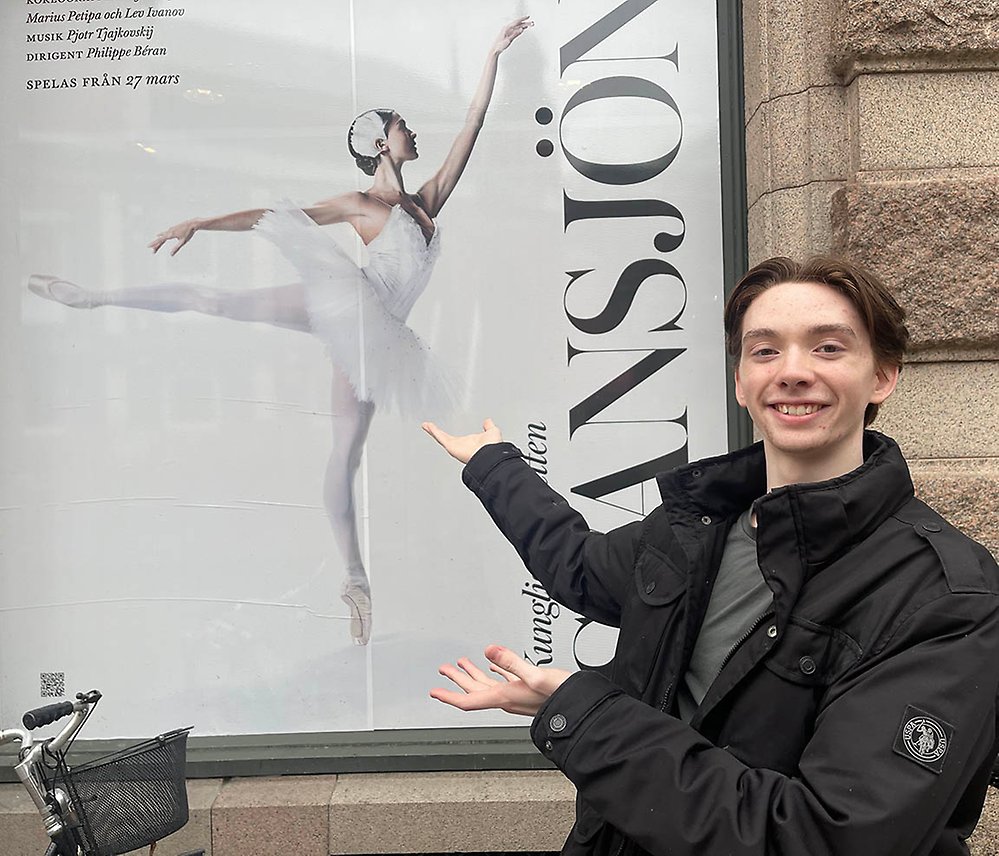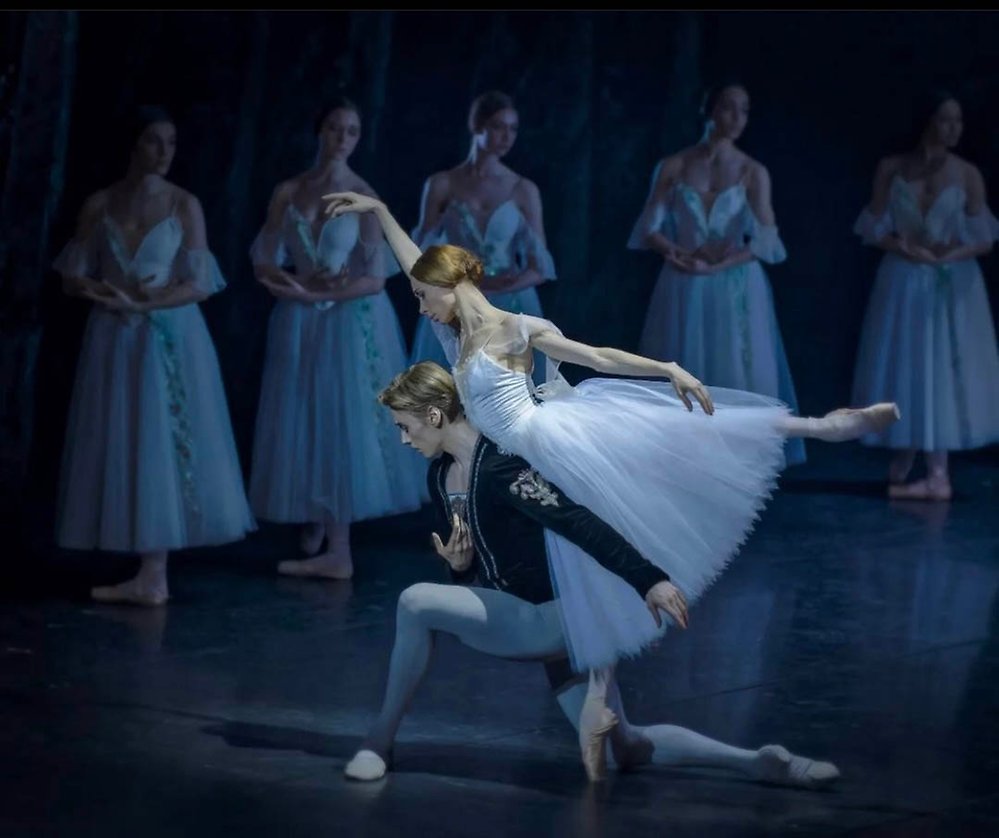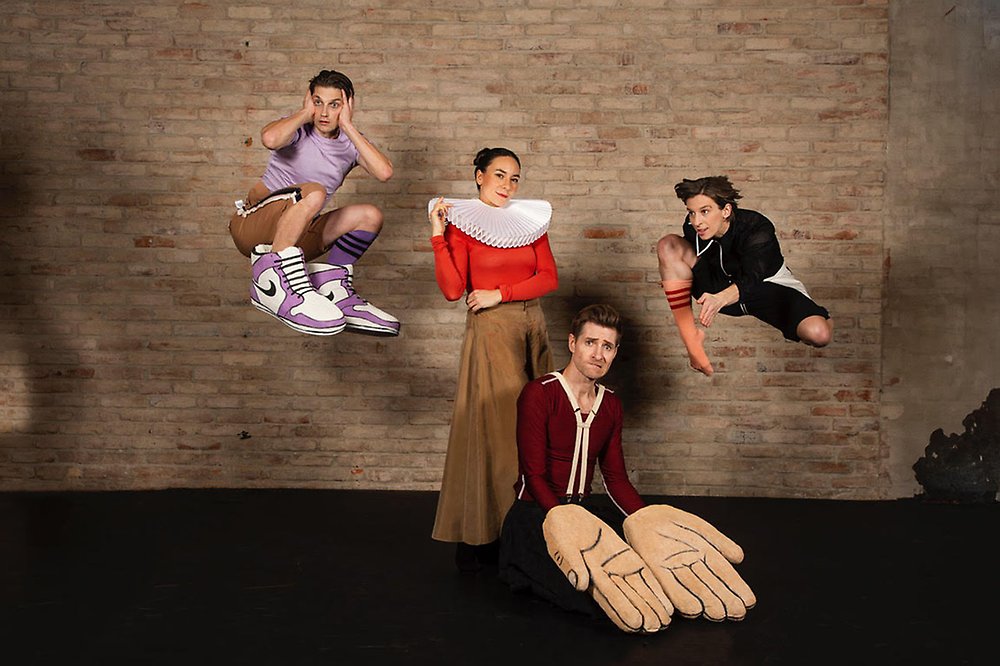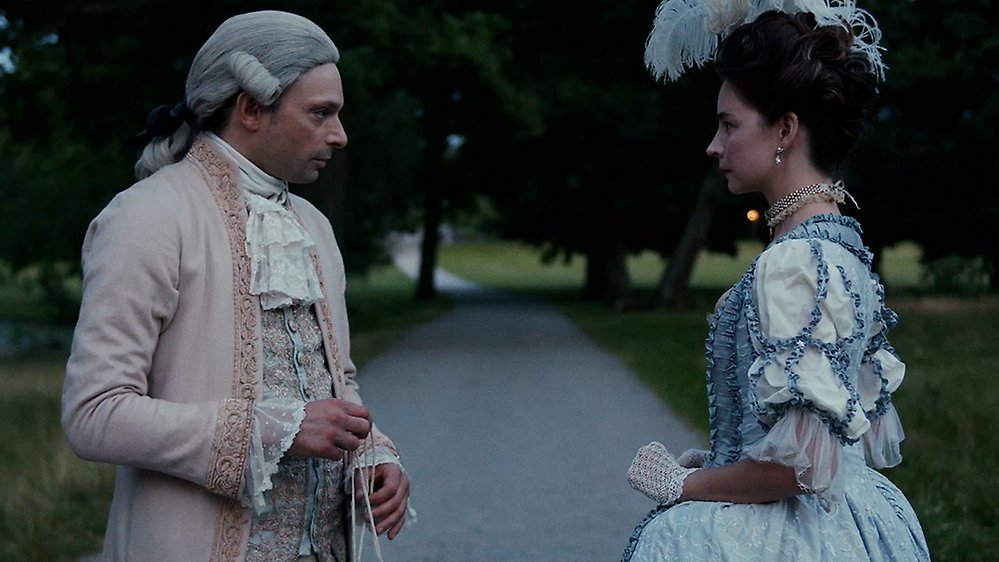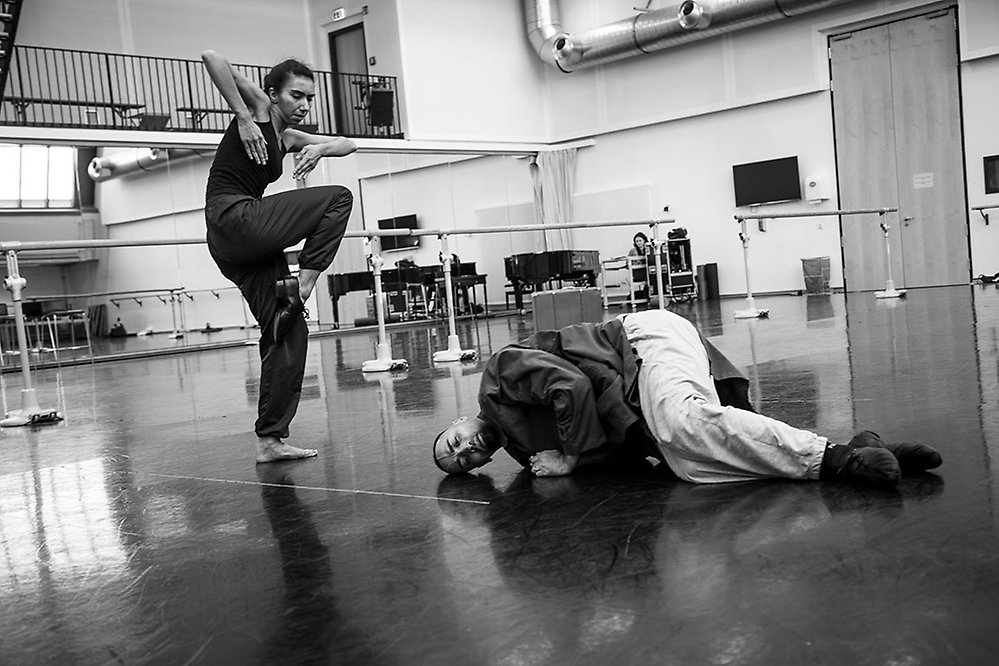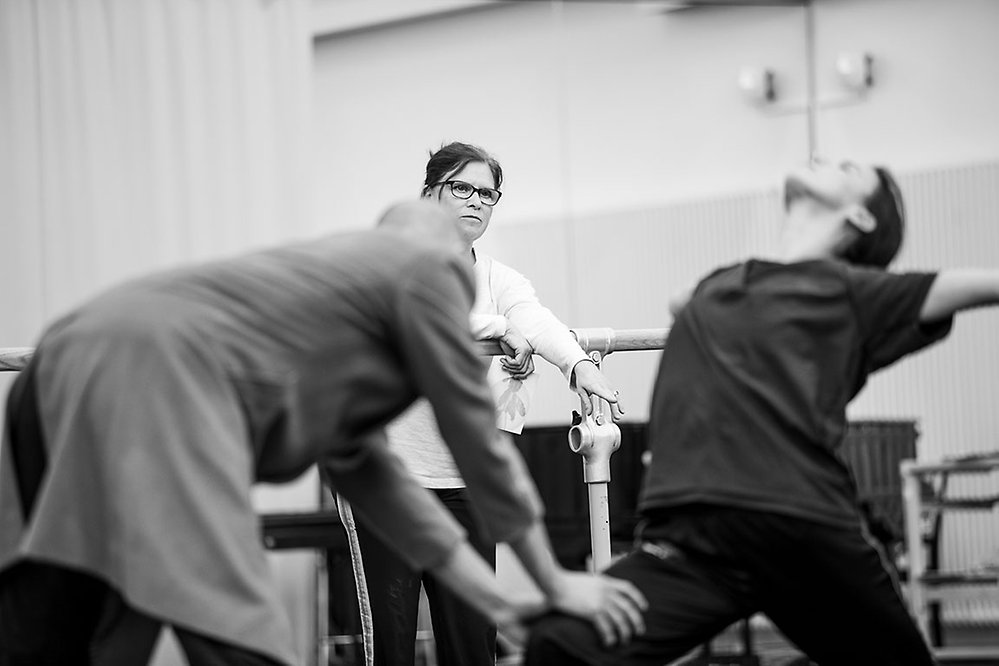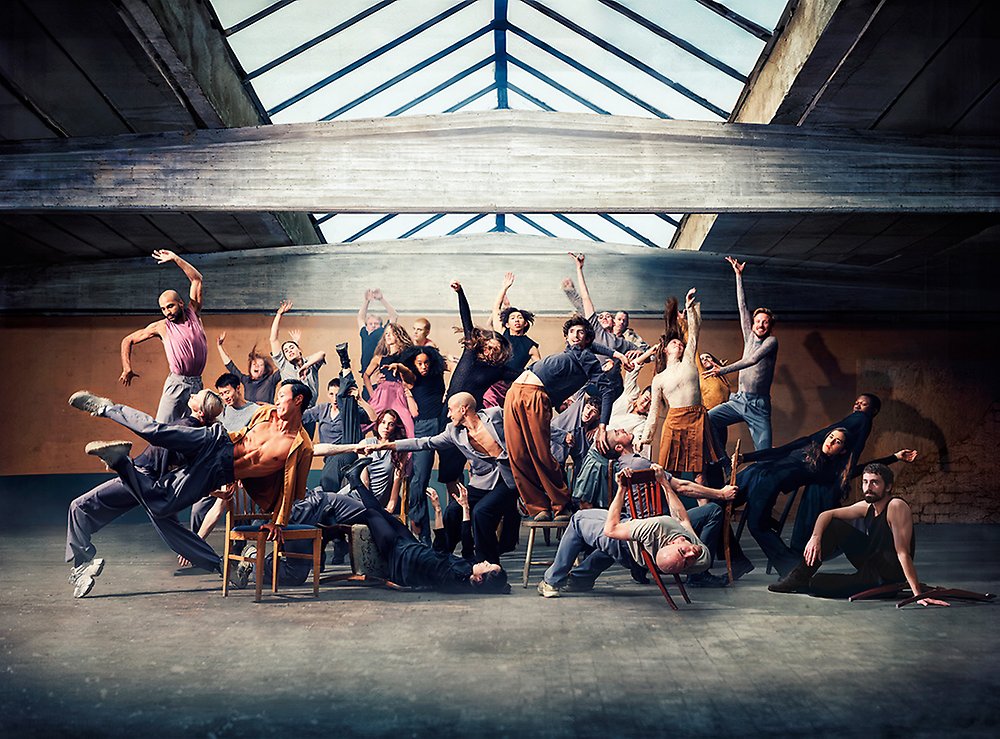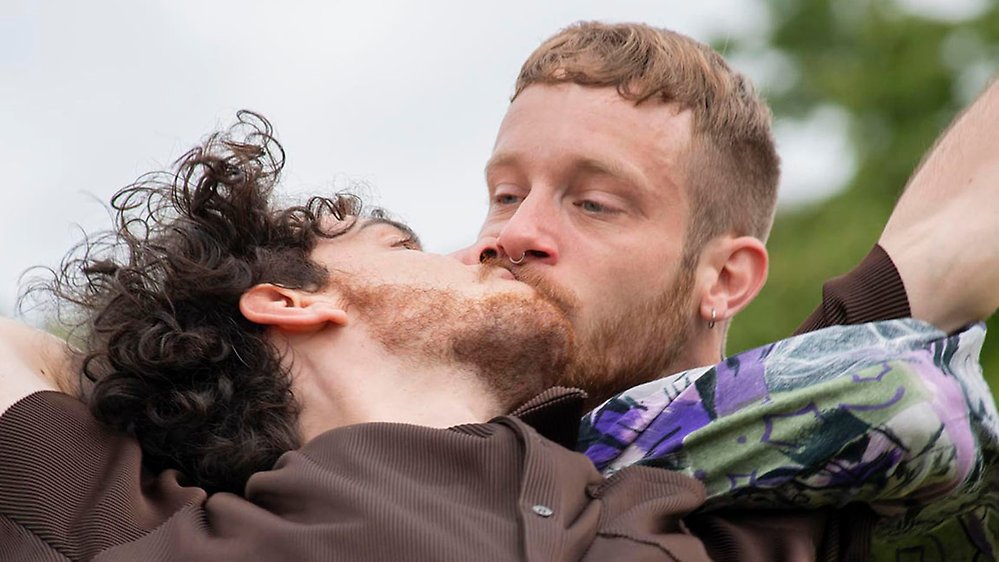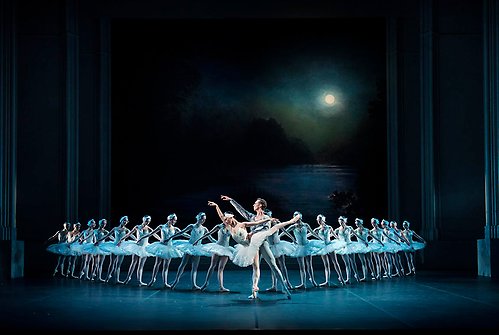Artiklar från 2008 – till idag
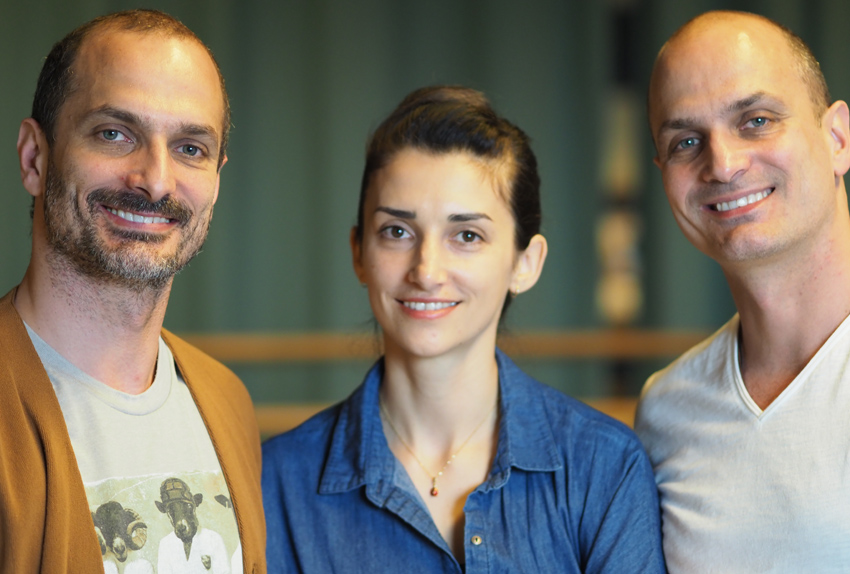
Jiří Bubeníček, his wife Nadina Cojocaru and his brother Otto Bubeníček. Photo Cristian Hillbom
Jiří Bubeníček: Nicholas Le Riche accepted with open arms to do The Trial
STOCKHOLM: Special guests at the meeting with Operans Balettklubb in Stockholm were choreographer Jiří Bubeníček, his wife Nadina Cojocaru, creator of the costumes–and his twin brother Otto Bubeníček, creator of the scenography for the ballet Processen.
The ballet is based on the novel The Trial written by Franz Kafka–published in 1925, one year after Kafka’s death.
”This is not my first visit to Stockholm,” says Jiří. ”I was here many times–even as a kid. When I was around 20 years and visited Stockholm, someone in the Royal Swedish Ballet company got sick and I was asked to jump in as Lysander in A Midsommer Night’s Dream.”
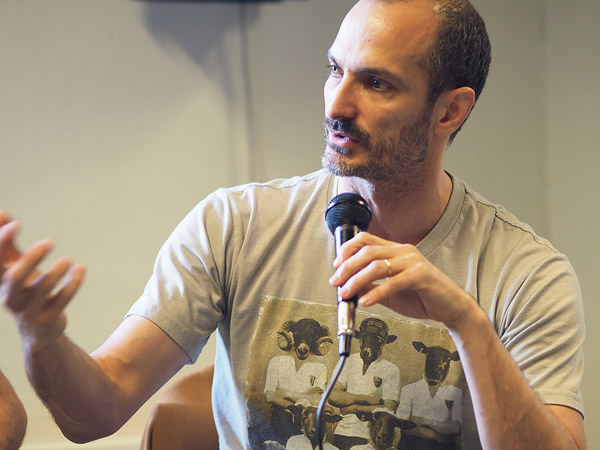
Jiří Bubeníček. Photo Cristian Hillbom
The Bubeníček brothers come from a Czech circus family and they were born in Lubin, Poland, where the circus was on tour. They grew up in Prague, where they also got their ballet schooling at the Prague Conservatory for Music and Dance.
After their graduation in 1993 they both joined the Hamburg Ballett where they stayed a number of years as two of John Neumeier’s most favoured soloists, dancing and creating leading roles in many of his epic ballets.
After about ten years Jiří left Hamburg and joined the Semperoper Ballett in Dresden and stayed there for 13 years as Principal dancer.
The two brothers continued to work together in many projects and when Otto left Hamburg their collaborations took form in a touring company, ”Les Ballets Bubeníček,” engaging dancers among their friends for each project.
They toured around Europe and also in Japan performing Jiri’s choreographic works and Otto stage or costume designs. This continued for ten years until last summer with their final performances in Prague, when Jiří choreographed a ballet after Bedřich Smetana’s 6 musical poems called My Father Land.
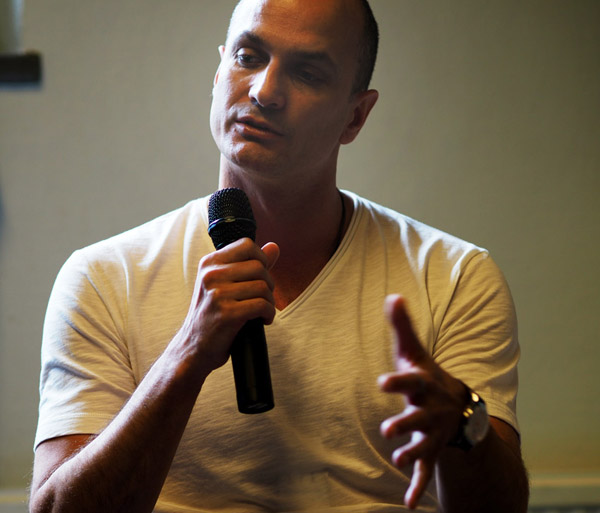
Otto Bubeníček. Photo Cristian Hillbom
Otto stayed on in Hamburg about 10 years before he started to work more regularly with Jiří, composing music and designing scenography. “I have always been creative and interested in stage design and music.” he says.
”It started already in school. If I had some free moment, I always did some creative things with leather, playing the piano, composing music, stage design in 3D, making some movie on the computer and so on.
When Jiří asked me to compose for him, to do some design and other things, I liked to do these things and gradually became a stage designer. I am very happy now, that I can do all the things I love–and get payed for it!”
When did they get interested in Kafka and The Trial?
“When you grow up in Prague, says Jiří, Kafka is part of your life. You walk on the same streets. We grew up in the same quarters in Prague. I went to the same school as Kafka,”
“When I was asked by Nicholas Le Riche to do a new piece here, I remembered Kafka’s The Trial and suggested it to him and he accepted it with open arms. I believe the Swedish people know about Kafka and his work. Together with Nadina we have been preparing the dramaturgy for this new piece during the last year.” says Jiří.
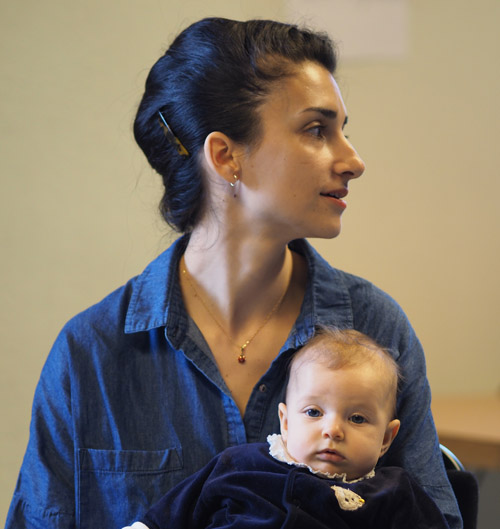
Nadina Cojocaru with Jiřís and her daughter Blanka. Photo Cristian Hillbom
Nadina has been working with the costumes for some time, and says ”my role as a costume designer for this piece was to enhance the weirdness of the characters and to bring up some symbols and details that are very important and would help the choreographer to better tell the story”.
How has Kafka and his writings influenced the Czech people?
“I can only give my own experience so I can’t talk about the feelings of the Czech people” says Jiří.
“Kafka is a symbol of Prague. Wherever you walk you see portraits of him. In my opinion the image of Kafka was stronger before Prague became ‘rich’ and full of tourists.”
Otto remarks, that when they were in school it was during the communist era and Kafka’s books were forbidden, so now he is glad he can read and discuss his works and express his own thoughts and feelings as he pleases.
To the question if they had any doubts about working with such a dark theme, Nadina smiles and remarks that in her opinion their ballet Processen is not such a dark piece, such a dystopia.
“If you read about Kafka’s work, The Trial may seem dark, and in fact Kafka asked his friend Max Brod to burn all his writings after Kafka’s death, he did not want anyone to read them,” says Jiří. Brod didn’t obey Kafka’s wish. Instead he edited and arranged the chapters in the present order–which Kafka had not done–and let publish The Trial.
“Brod also said that when reading these chapters together with Kafka, they actually had laughed. Our Processen is more about the ridiculous, the grotesque, the eccentricities, the absurdities in situations from life. In my opinion it is a story that asks the question what life is about. Man’s inability to understand the meaning of his own existence. One can feel that this is Kafka’s theme in all his books,” says Jiří Bubeníček.
Marie Louise Waldenström/Anders Jörlén
17 May 2019
-
Gustavia – berättelsen om Sveriges okände prins
Nyskriven balett om Gustav Badin och hans uppväxt vid hovet, i koreografi av Pär Isberg och regi av Amir Chamdin. Urpremiär på Kungliga Operan s stora scen den 18 oktober....
-
Yoann Bourgeois tillbaka till Göteborgsoperans Danskompani med ett sant styrkeprov
Efter fyra år är det dags igen för den franske koreografen Yoann Bourgeois att återvända till Göteborgsoperans danskompani. Denna gång för verket We loved each other so m...
-
Spot on Darrion Sellman – dancing the leading role Siegfried in Swan Lake
In August last year Darrion Sellman arrived to Stockholm and joined the company. Darrion says: “It has been a change to come to Stockholm. A vibrant city, small but calme...
-
Kalle Wigle nyutnämnd solist vid Staatsballett i Berlin
Dansportalen gratulerar svenske dansaren Kalle Wigle som nyligen utnämnts till solist vid Staatsballett i Berlin.
-
Succéduo skapar nytt efter segertåg i Sverige och Europa
Intervju Hugo Therkelson och Tobias Ulfvebrand
-
40 år senare: En dansares triumf över tidens utmaningar
Förra sommaren ringde telefonen hemma hos Heléne i Kungsbacka. I lördags den 16 mars gjorde hon comeback på scenen efter nära fyra decenniers frånvaro och dessutom debut ...
-
Fart och kunnande på Pro Dance Galan 2024
Gamla operabyggnaden vid Bulevarden är ett Dansens Hus även om ett nyare Dansens Hus numera finns i Helsingfors, det också i centrum. Båda har sin publik, och båda behövs...
-
Svenske dansaren Kalle Wigle har stora framgångar i Berlin
Kalle Wigle är utbildad vid Kungliga Svenska Balettskolan och vid Royal Ballet School i London. Han fick anställning vid Operan i Stockholm 2016. Från hösten 2023 är han ...
-
Timulak/Portner två olika verk men med flera beröringspunkter
Från och med 9 februari och nästan en månad framåt dansar Kungliga Operan i Stockholm Totality in parts av Lukás Timulak och Bathtub Ballet av Emma Portner . De båda koreo...
-
På jakt efter det fullkomliga: nationens skickligaste dansare och – smultron!
Balettpedagogernas förbund ordnar vartannat år i Finland en nationell balettävling, i år 20-21 januari. Ett råd av balettkonstnärer med bakgrund som meriterade dansare ha...
-
Young Choreographers en föreställning där dansare från Kungliga Operan koreograferar
Tisdagskväll på Kungliga Operan i Stockholm och det är premiär för Young Choreographers. Dansare från ensemblen får chansen att pröva egna idéer och koreografera sina kol...
-
Operans VD Fredrik Lindgren: På sikt vore det fantastiskt att få ett nytt Operahus i Stockholm
Kungliga Operan är en 250-årig kulturinstitution i hjärtat av Stockholm. Över 500 anställda levererar hyllade föreställningar med utsålda hus. Dansportalen har samtalat m...
-
Från Svenska balettskolan i Göteborg till ungerska Statsoperan i Budapest
Det började med 6 år på Svenska balettskolan i Göteborg med start i årskurs fyra för Mattheus Bäckström och Auguste Marmus . Mattheus gick ut 2017 och hade då blivit antag...
-
Joseph Sturdys verk Lucid Episode inleder nyårsgalan på Kungliga Operan
Vi befinner oss på Kungliga Operan. Det pågår repetition med två dansare som är med i Joseph Sturdy s verk Lucid Episode som inleder själva nyårsgalan den 31 december.
-
Göteborgsoperan sjunger in julen med En Julsaga
Göteborgsoperan avslutar december månad med nypremiär på musikalversionen av Dickens En julsaga . Föreställningen är breddad med humor och medmänsklighet. Adams julsång bl...
-
Nötknäpparen, nypremiär på Kungliga Operan i Stockholm efter fyra års uppehåll
Det är nypremiär av Pär Isbergs Nötknäpparen på Kungliga Operan i Stockholm. I salongen sprids julstämningen och publiken får vara med om en dansant och virvlande berätte...
-
Giovanni Bucchieri – en konstnärlig kameleont
Det är premiär för filmen 100 ÅRSTIDER . Upphovsmannen har gått från dansare till multikonstnär. Möt regissören Giovanni Bucchieri i en personlig intervju med Dansportalen...
-
”Mycket talar för att vi inte kommer att kunna vara kvar där vi är nu,” säger Hans Lindholm Öjmyr, ny chef för Dansmuseet
Hans Lindholm Öjmyr är filosofie doktor i konstvetenskap och har skrivit en avhandling om scenografi på 1800-talet vid Kungliga Teatern/Operan. Hans har tidigare varit av...
-
In a heartbeat, ny världspremiär på Göteborgsoperan
In a heartbeat bekrivs som ett pulserande dansbubbel och på Göteborgsoperan är det nu världspremiär allhelgonaafton på stora scenen för Hofesh Shechter s verk Wild poetry ...
-
Le Corsaire, svensk premiär på Kungliga Operan med virtuos dans och teknisk skicklighet
När Kungliga Operan för första gången ger Le Corsaire bjuds det på en dansfest. Verket som hade sin urpremiär på Parisoperan 1856 kommer till liv och publiken får möjligh...
-
New talents join the Royal Swedish Ballet
Eleven young dancers join the Royal Swedish Ballet company this season. We are thrilled to see them on stage! On October 27, this season's grand premiere of Le Corsaire w...
-
Där låg onekligen ett skimmer över Gustavs dagar
I Livrustkammarens visas den största satsningen på flera år på en tillfällig utställning i samarbete med Kungliga Operan – öppnas 20 oktober, Teaterkungen: Prakten, makte...
-
Attityder som uppskattades
I Drottningholmsteaterns déjeunersalong gavs i september in innehållsrik, högklassig presentation av ett forskningsprojekt som genomförs på Kungliga Musikhögskolan och fi...
-
Spot-on Kentaro Mitsumori, dancer with the Royal Swedish Ballet
Kentaro Mitsumori has been a member of the Royal Swedish Ballet since 2017. We have seen him in many roles, in Swan Lake, Cinderella, Don Quijote, The theme and variation...
-
Kalle Wigle-Andersson får stipendium från Jubelfonden
Kalle Wigle-Andersson: Jag är utbildad och diplomerad vid Royal Ballet Upper School, London 2016. Innan dess gick jag på Kungliga Svenska Balettskolan 2006-2014. Sedan mi...
-
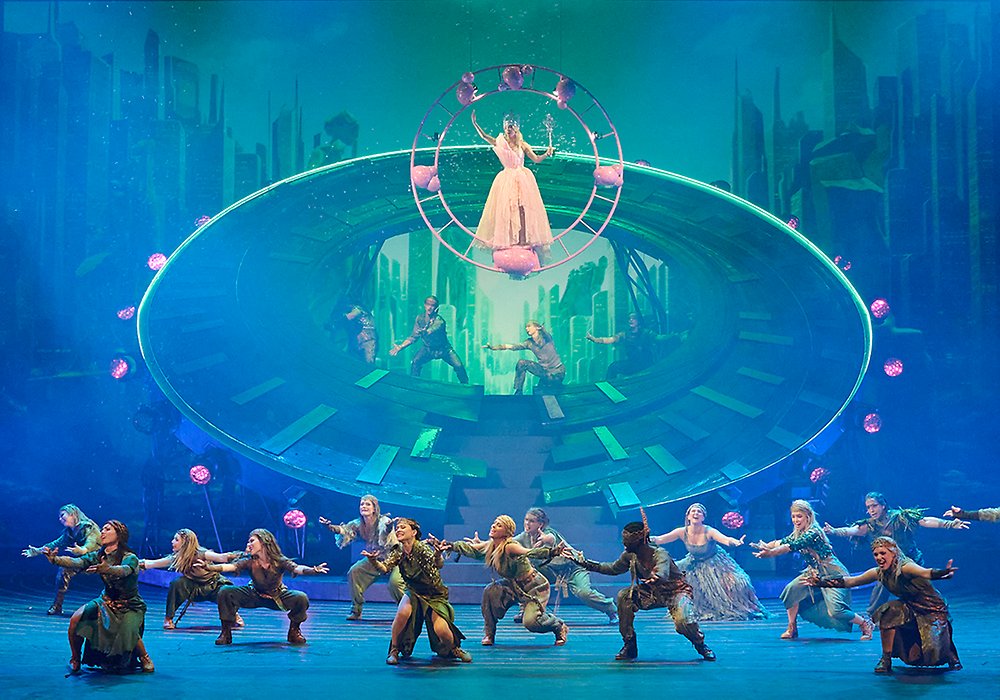
Wicked, musikalen om häxorna i Oz
Göteborgsoperan inleder sin höstsäsong med den mytomspunna succémusikalen Wicked. Exakt tjugo år efter Broadwaypremiären 2003, sätts den nu upp för första gången i Sverige.
-
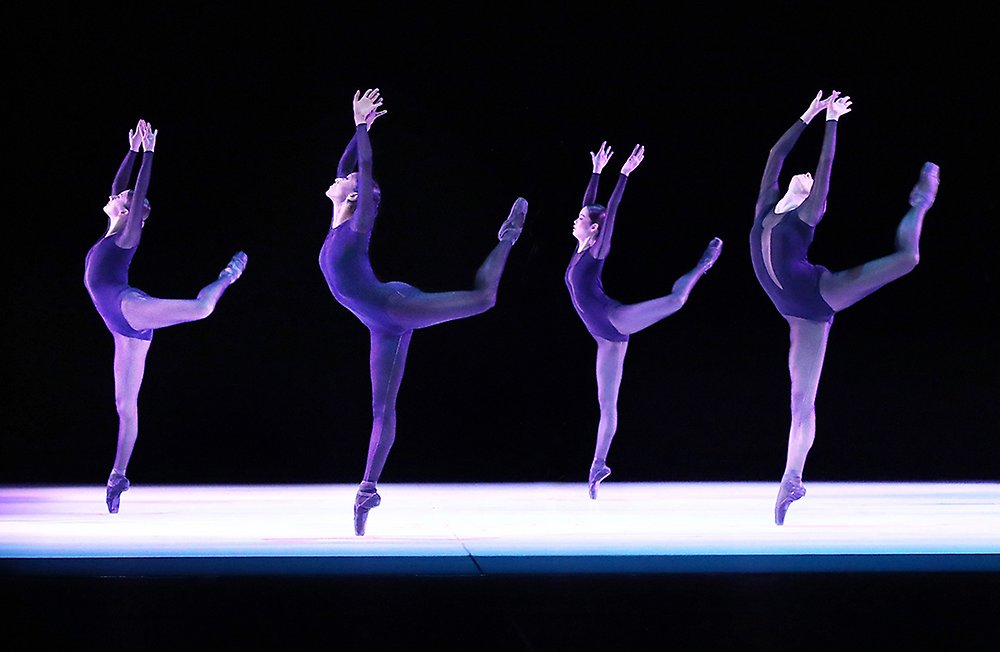
Balettgalan i Villmanstrand är sensommarens succéevenemang
Balettgalan i Villmanstrand vid Finlands östra gräns gavs i år för 12:e gången och var igen en succé med både nationella och internationella dansare. Galans grundare och eldsjäl Juhani Teräsvuori hade...
-

Möte med Fredrik Benke Rydman om ”The One”
Det är mannen från dansgruppen Bounce, koreograf till egna versioner av Svansjön och Snövit bland mycket annat. Jag träffar Fredrik Benke Rydman på en liten thaikrog mellan repetitionspassen.
-
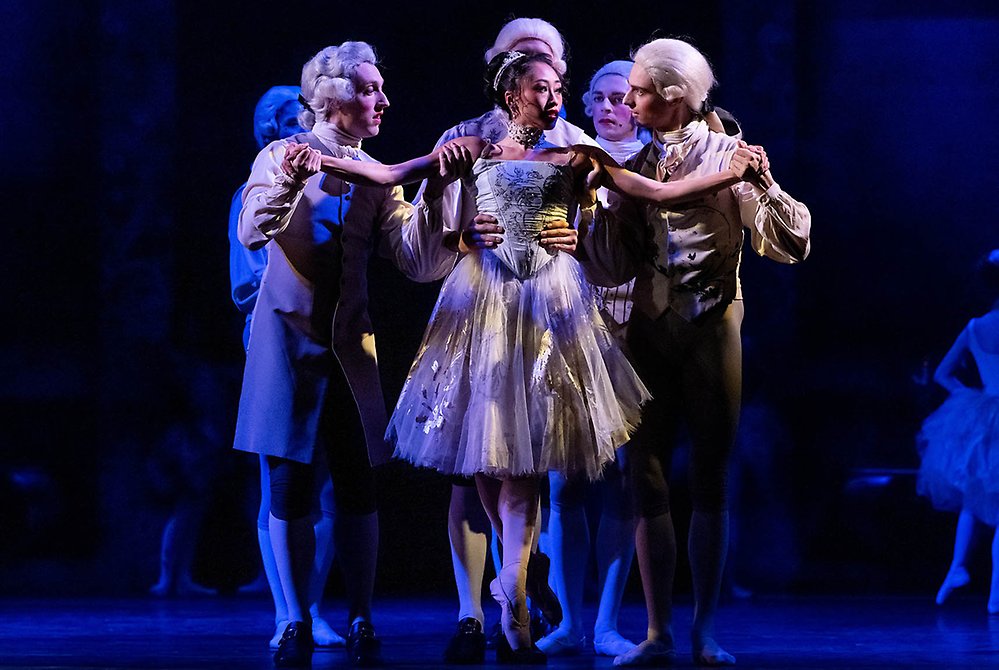
“A new look at it” – Lady MacMillan about Manon with the Royal Swedish Ballet
As part of the 250-year jubilee program of the Royal Swedish Opera and as a tribute to the long-lasting cooperation between the Royal Swedish Ballet and world-renowned English choreographer Sir Kennet...
-
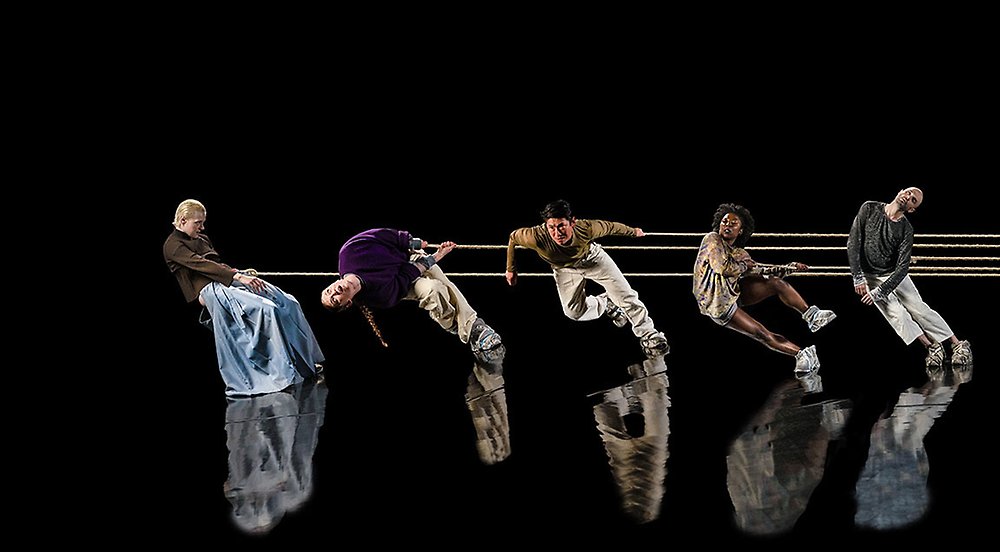
Urpremiär av episkt dansverk på Norrlandsoperan
Den 1 september bjuder Norrlandsoperan på säsongsuppstart för dans med urpremiär av den episka föreställningen Remachine signerad koreografen Jefta van Dinther . Ljus, ljud, röst, koreografi och scenog...
-
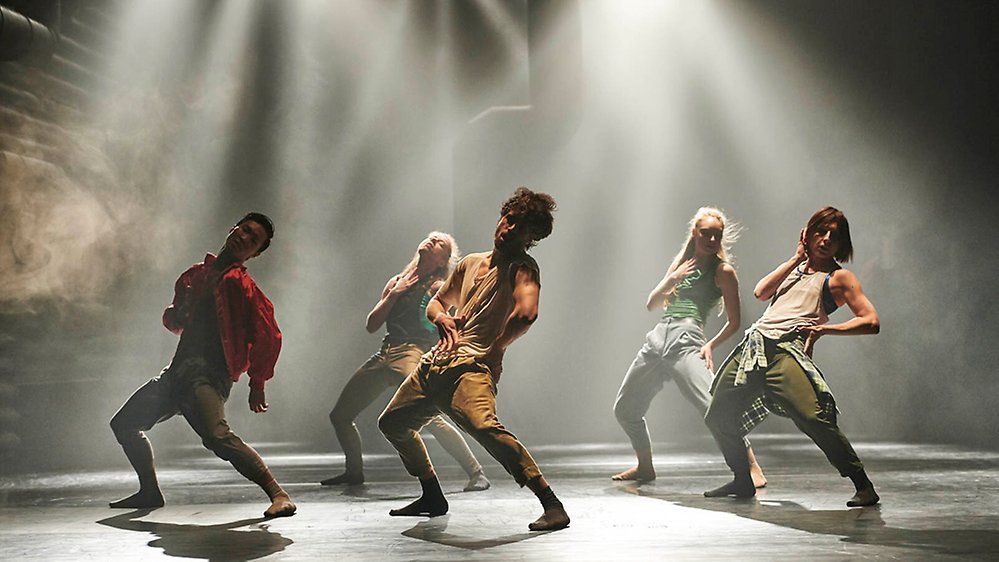
Contemporary dance av Hofesh Shechter på GöteborgsOperan
Danskväll med intensiv klubbfeeling, smittande glädje och en upplevelse som börjar redan utanför operahuset.
-
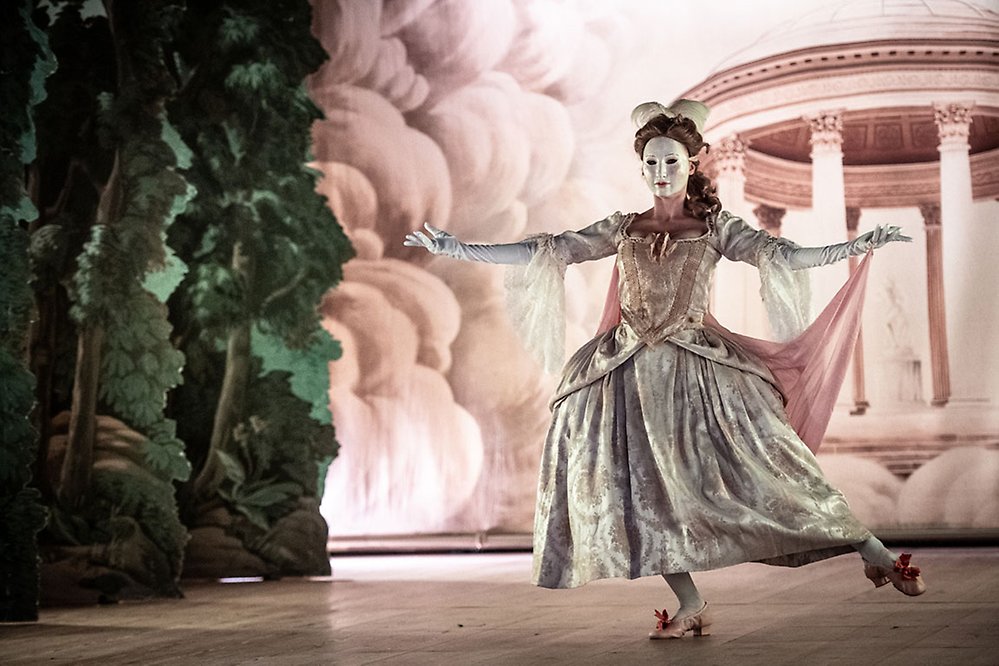
Julia Bengtsson – internationell barockdansös från Sverige
Höjdpunkten under årets förnämliga Opera- och musikfestival på Confidencen var iscensättningen av Jean-Philippe Rameaus opera Dardanus . I en annan föreställning, A Baroque Catwalk , gjorde Julia Bengts...
-
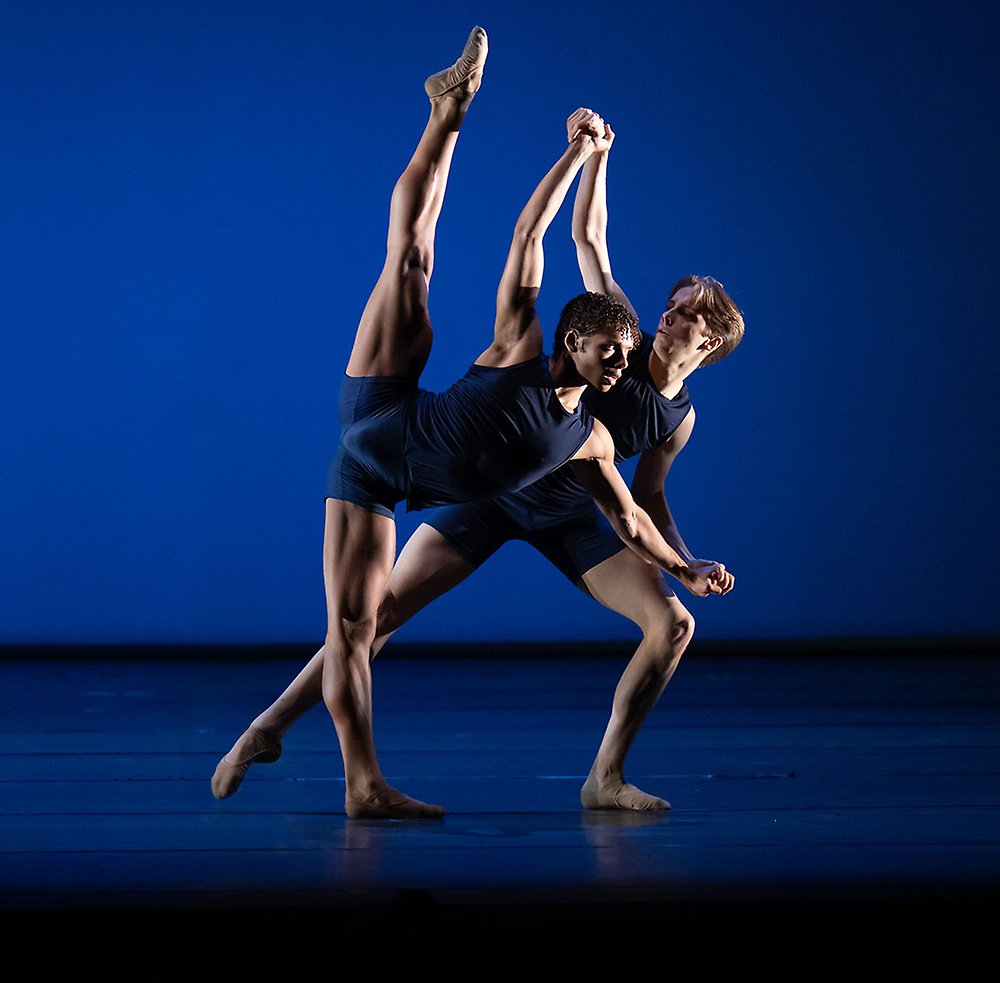
The Royal Ballet School Delights
Written on the faces of the dancers as they spin and leap in the ecstatic final moments of the Grand Défilé , is the smile that says, ‘I did it’. It’s what I look forward to year after year and it neve...
-
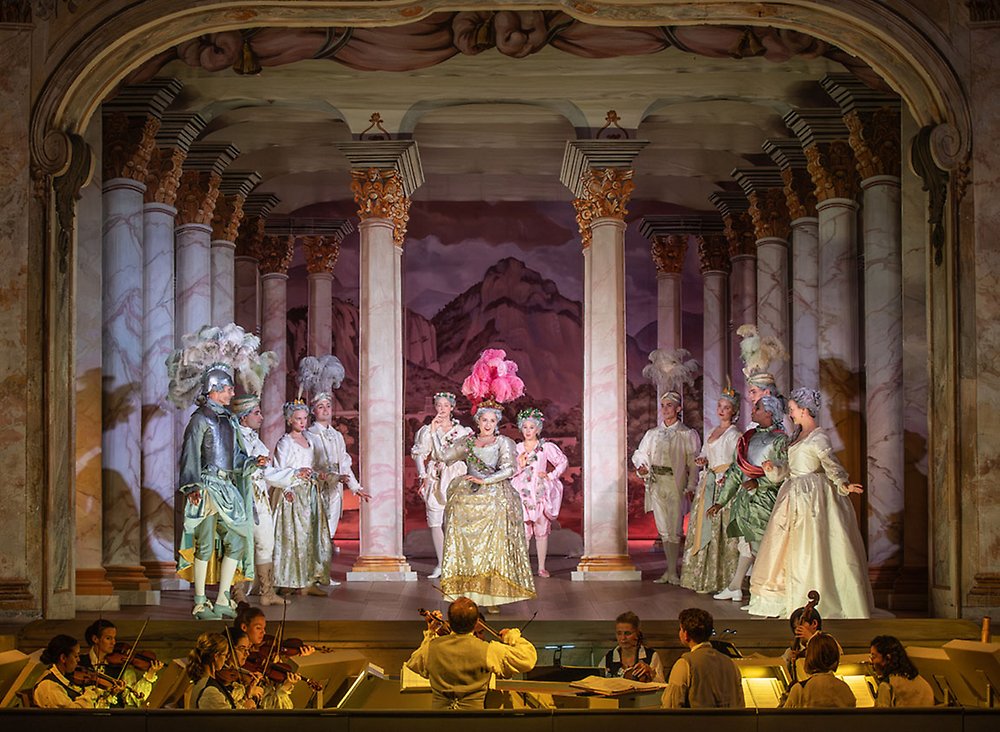
Ett barockt spectacle på Confidencen
Confidencen Opera & Music Festival inleds den 27 juli med Jean-Philippe Rameaus mästerverk Dardanus, som genom ett gediget arbete får sin nordiska premiär på Sveriges äldsta rokokoteater – 284 år efte...
-
Möt Vivian Assal Koohnavard dansare vid Staatsballett Berlin och aktivist
I Berlin träffade jag och arbetade med Vivian Assal Koohnavard. Vivian fick sin dansarutbildning i Sverige och Tyskland. Hon har varit anställd vid Berlin Staatsballett sedan 2018. Där deltar hon i de...
-
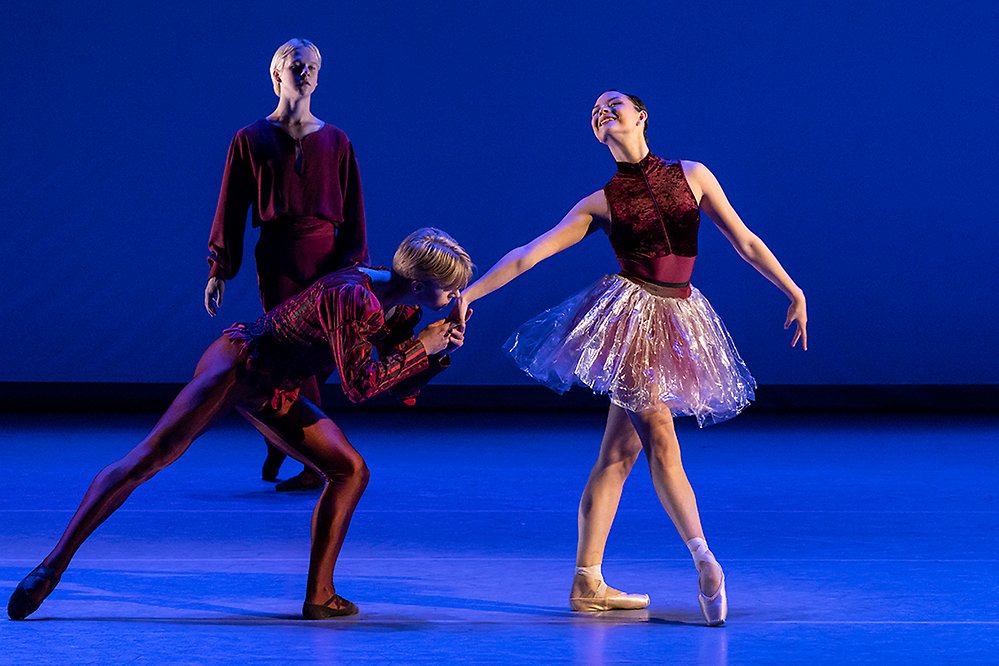
Peter Bohlin om Kungliga Svenska Balettskolans uppvisningsföreställningar
Skolårets sista föreställningar på KSB var uppdelade i fyra program. Några koreografier var storartade, andra inte. Här, mot slutet, ett försök att resonera om anledningar till detta.
-
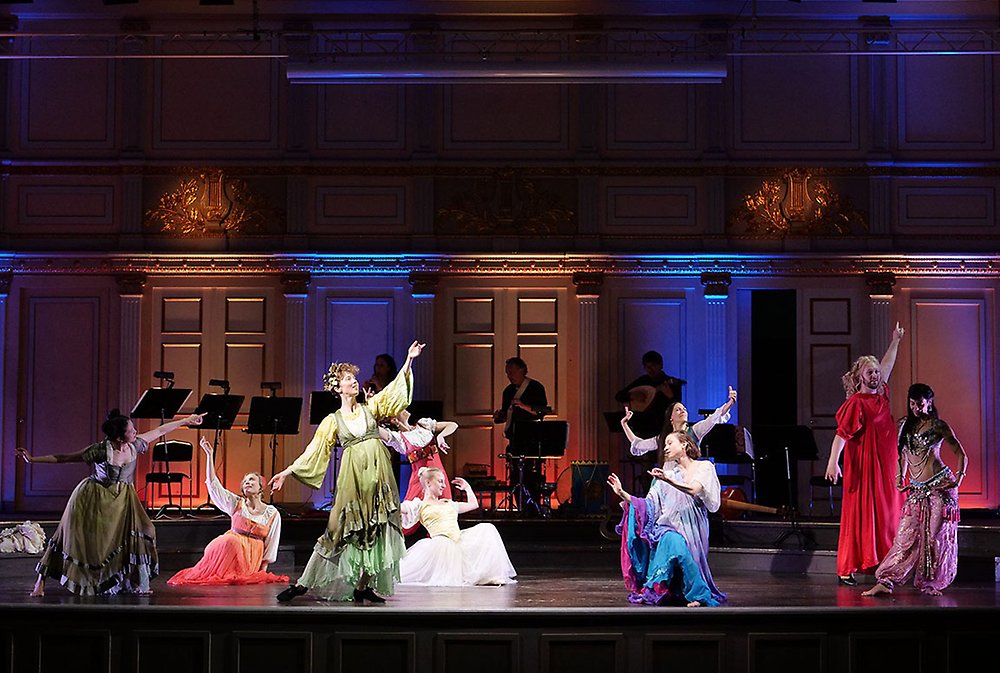
Dans i Stockholm Early Music Festival
I 2023 års version av Stockholm Early Music Festival , den tjugoandra i ordningen, ingick två dansföreställningar. I fablernas värld , en kort musikalisk och dansant barockföreställning med Folke Danste...
-
.jpg)
Suite en Blanc av Estoniabaletten med fina danssolister
Jag hade möjligheten att två gånger se en ny balettafton med två verk. Black/White innehöll “Open Door ” av polskan Katarzyna Kozielska och Serge Lifars kända och genuina Suite en Blanc . Den sistnämnda...
-
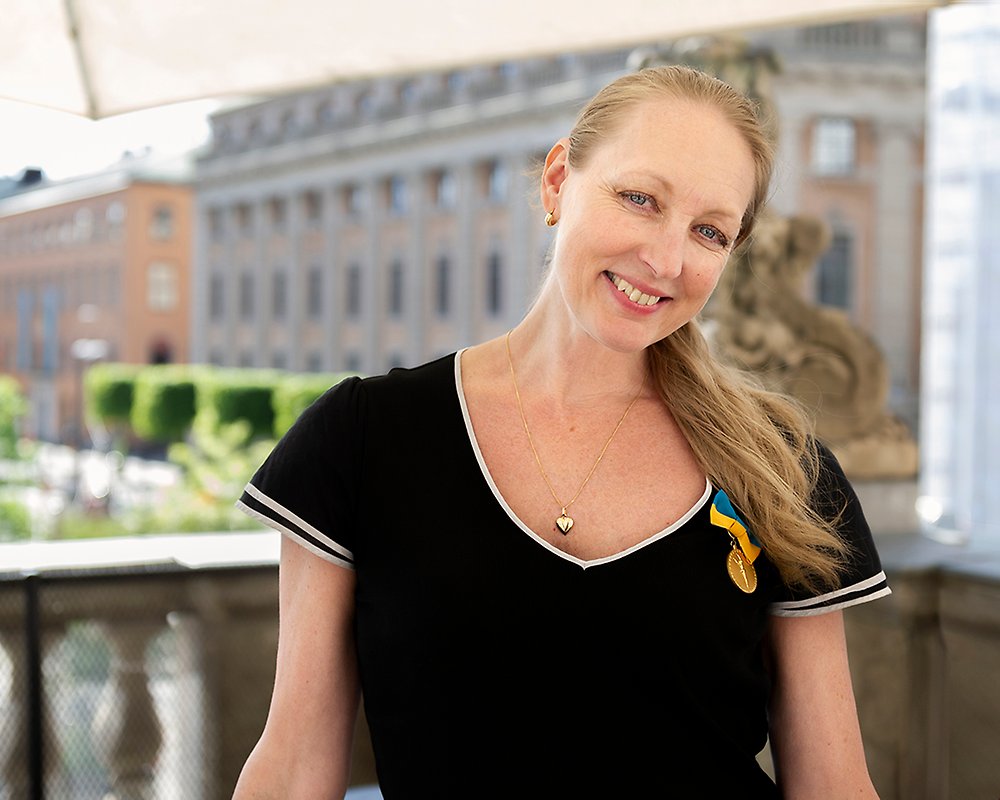
Marie Larsson Sturdy Carina Ari Medaljör 2023
På Carina Ari-dagen 30 maj tilldelades Marie Larsson Sturdy Carina Ari-medaljen för hennes mångåriga och engagerade insatser inom Dans i Nord – en vital verksamhet som under mer än 20 år har främjat m...
-
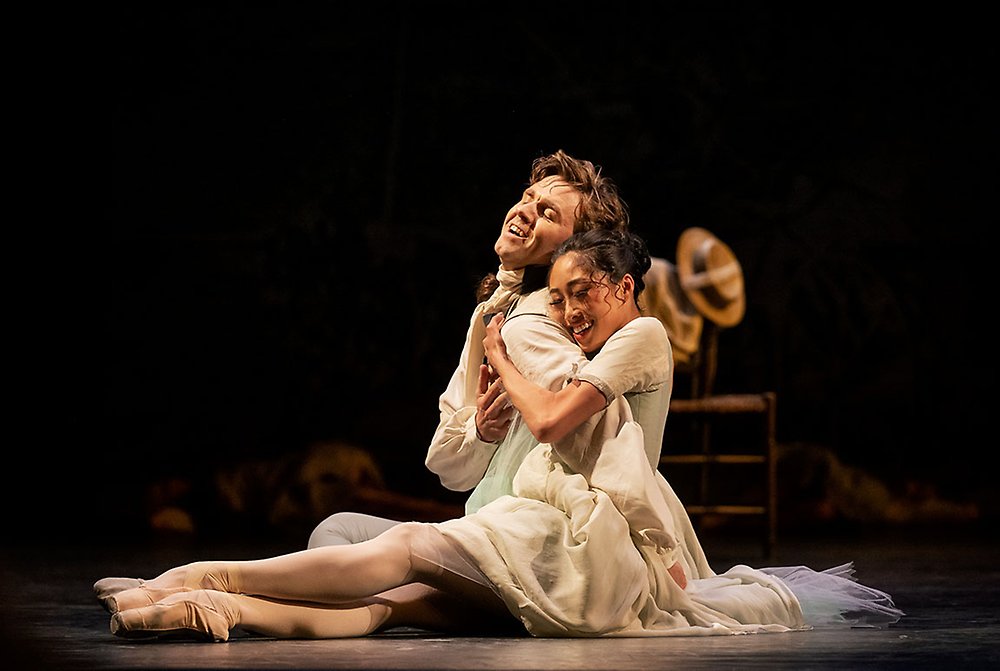
Manon: An evening to treasure
Kenneth MacMillan’s Manon created in 1974, continues to weave its magic providing a slew of dramatic roles against a volatile and violent backdrop. The Royal Swedish Ballet first presented the ballet ...
-
Instudering av Mats Eks ”En slags” med Staatsballett Berlin
I april 2022 reser Koreografen Mats Ek och jag till Berlin för att hålla audition med dansarna vid Staatsballett Berlin på Deutsche Oper. Vi ska välja dansare till verket ”En slags” av Mats Ek. Premiä...
-
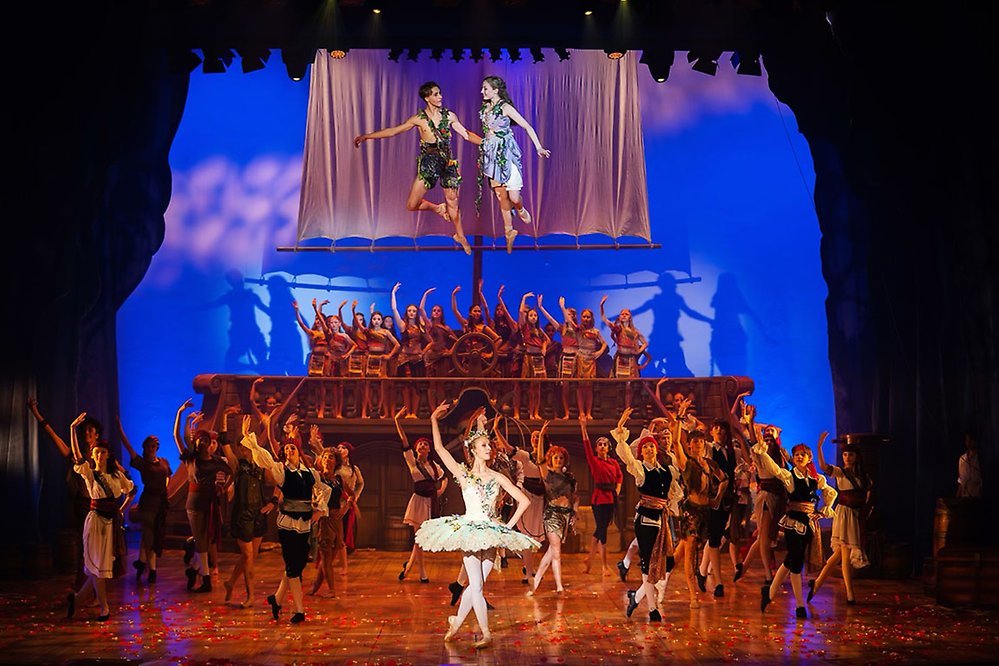
Marianne Mörck berättar sagan om Peter Pan med Svenska Balettskolan
Till vårens uppsättning av Peter Pan och Wendy på Lorensbergsteatern är en av gästartisterna ingen mindre än Marianne Mörck . Efter första repetitionen tillsammans med baletteleverna på svenska baletts...
-
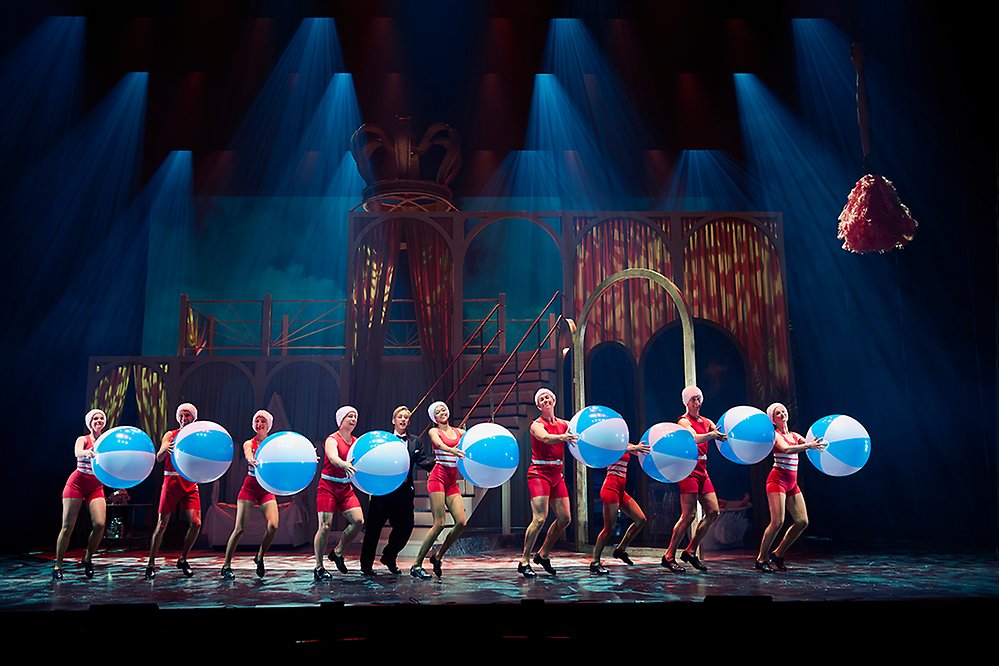
Det var en gång på Grand Hôtel, musikalen som återupptäckts
Göteborgsoperan avslutar sin vårsäsong med premiär den 22 april på Paul Abrahams musikal Det var en gång på Grand Hôtel. Musikalen som legat gömd fram till 2017. En föreställning fylld av dans och mus...
-
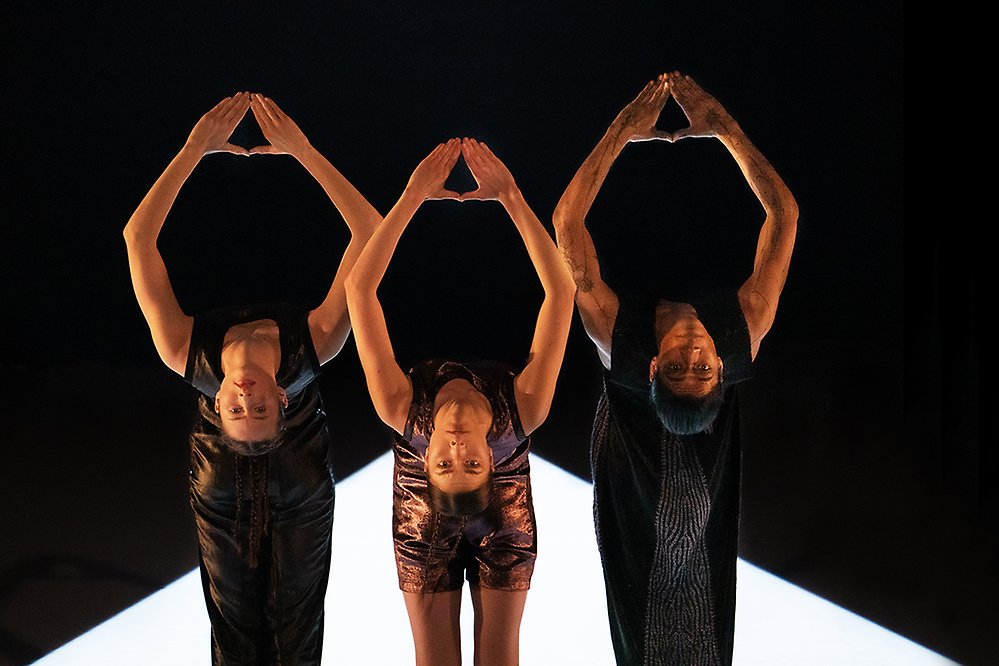
Virpi Pahkinen: "Precision möter osäkerhet, matematik möter mystik"
Change – den nya dansföreställningen av och med Virpi Pahkinen – är uppbyggd enligt principen 5 + 5 + 5, dvs koreografi/ljus/musik. Strax före fredagskvällens premiär på Kulturhuset Stadsteatern fick ...
-
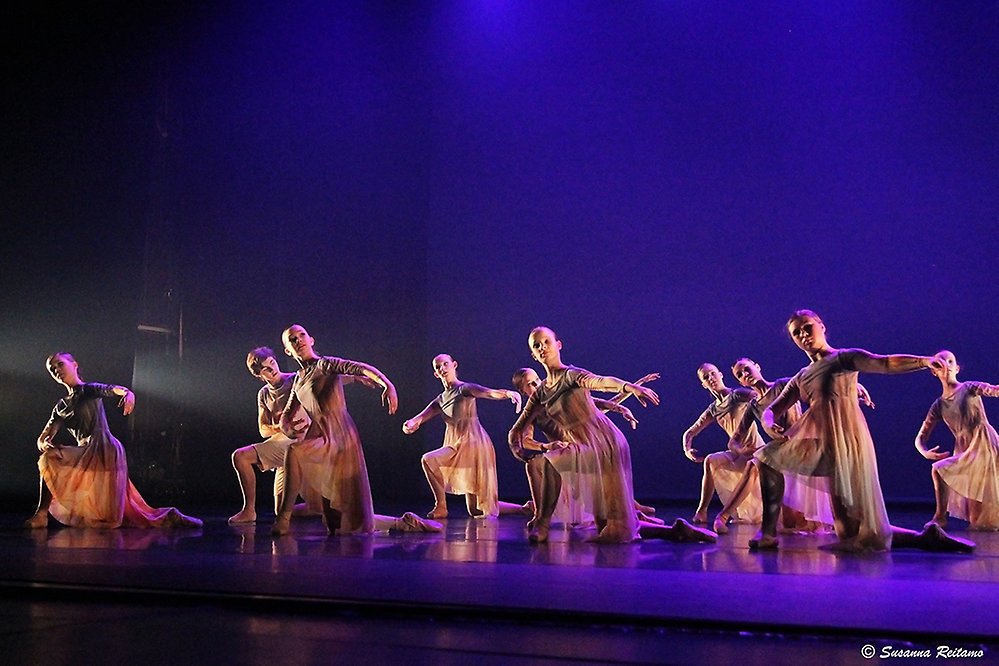
För dansens skull dansas Pro Dance galan
Den anrika Aleksandersteatern fylldes åter av dansfolket som ville stödja dansen och dess utövare via föreningen Pro Dance med att köpa biljetter till den årliga galaföreställningen. Artisterna uppträ...
-
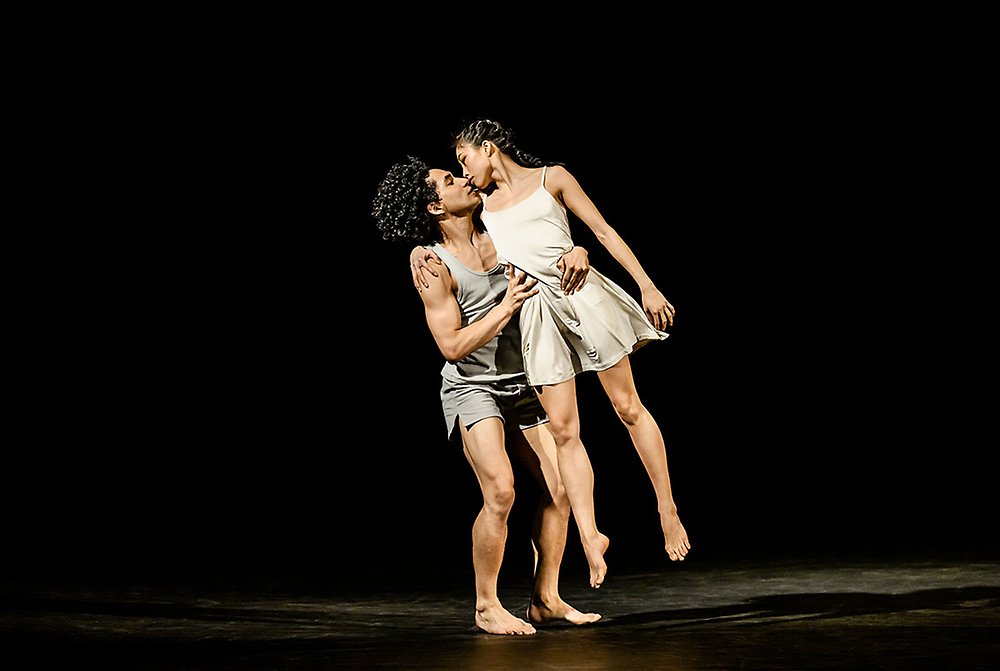
Anthony Lomuljo – om hur det är att igen dansa Romeo – 10 år senare
10 år har gått sedan urpremiären av Mats Eks Julia & Romeo på Kungliga Operan i Stockholm. Då liksom nu dansar Anthony Lomuljo rollen som Romeo. När Dansportalen några dagar innan premiären träffar An...
-
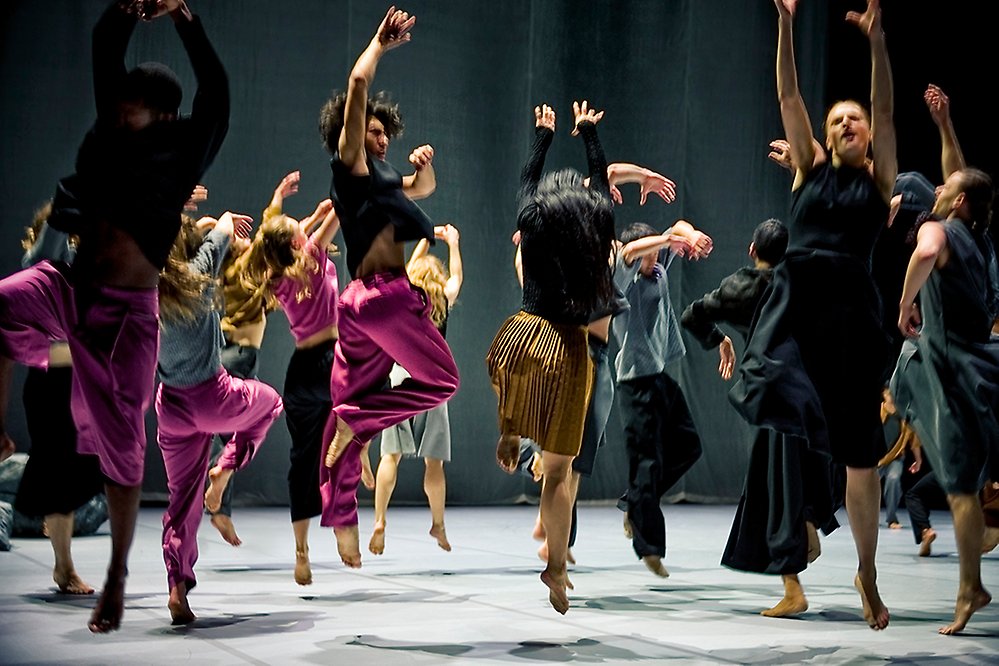
Hur bygger vi upp oss själva igen när allt är förstört–Johan Inger om Dust and Disquiet på Göteborgsoperan
Danskvällen Touched visar två världspremiärer på Göteborgsoperan, Dust and Disquiet av Johan Inger och To Kingdom Come av det nederländska syskonparet Imre och Marne Van Opstal . Naturkatastrofer runt ...
-
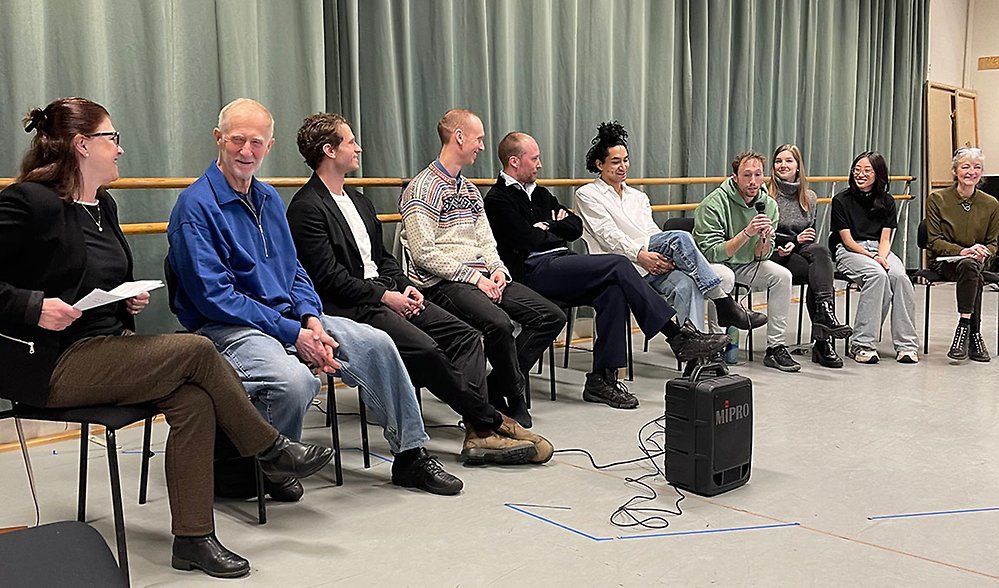
Mats Ek om Mats Eks Julia & Romeo
Operans Balettklubb gästades lördag 25 mars av koreografen Mats Ek och dansare inför nypremiären av ”Julia & Romeo” på Kungliga Operan. Verket uppfördes på teatern för första gången 2013. Det har ocks...
-
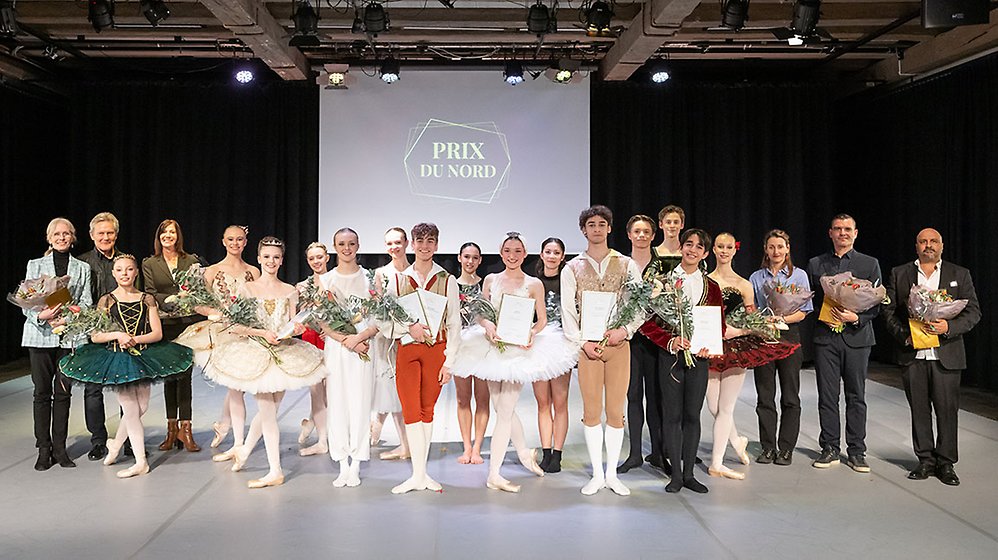
Nordens största danstävling lockade 44 dansare
Äntligen! Det är vad de flesta kände när tävlingen Prix du Nord genomfördes på Kronhuset i Göteborg.
-
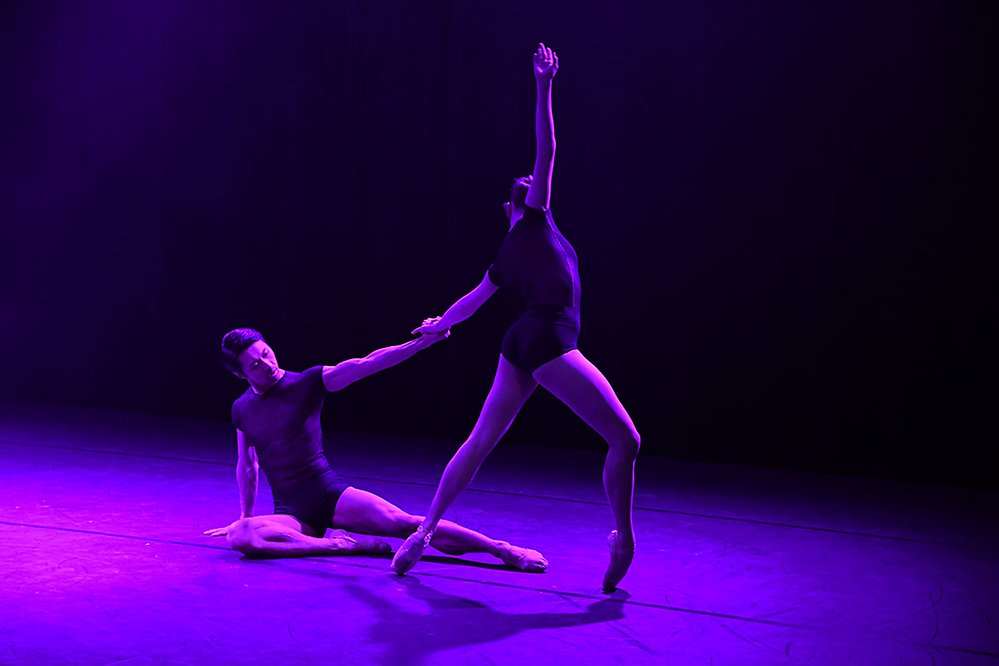
Young choreographers en bra plattform för nya idéer
En alldeles särskild glädje med workshopartade föreställningar är att man får se dansarna på riktigt nära håll. Så var fallet på Operans Rotunda 16 och 18 mars, i ett program med sju koreografer och 3...
-
%20Agathe%20Poupeney%20OnP%20-BONP-D%C3%A9fil%C3%A9.jpg)
Gala till minne av den lysande dansaren Patrick Dupond
Under februari var det tre utsålda galor på Palais Garnier i Paris, till minne av dansaren och balettchefen Patrick Dupond . För programmet på galan, se nedan!
-
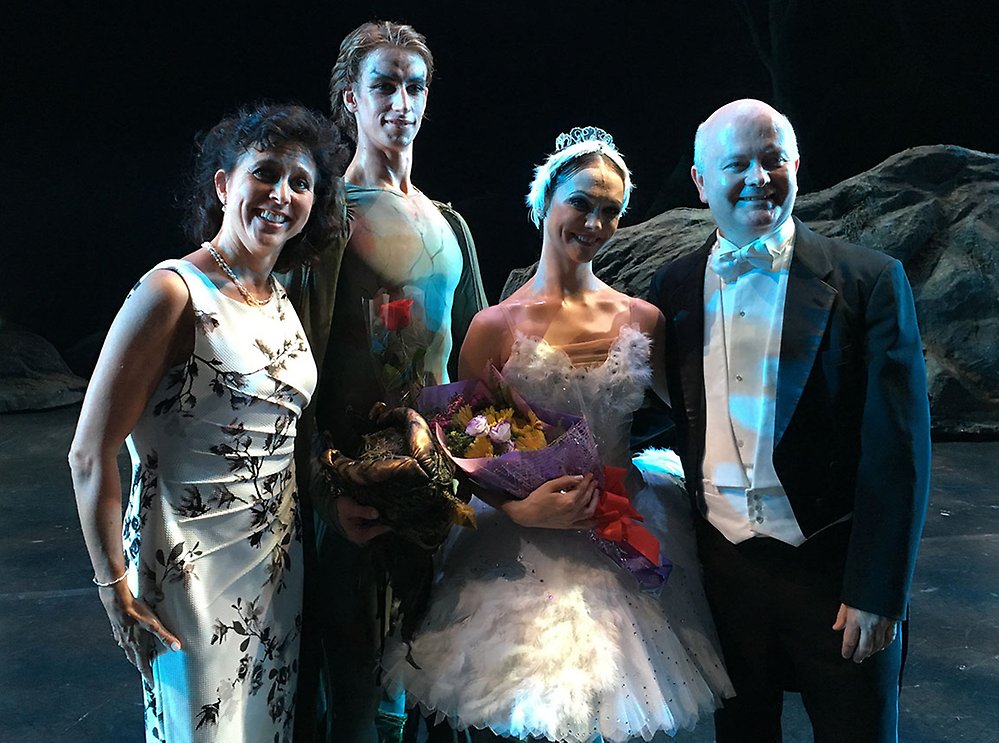
Madeleine Onne: Man får slåss för sin konstart
Madeleine Onne har varit balettchef i Stockholm, Hongkong och Helsingfors. Dansportalen har pratat med Madeleine om bland annat tiden i Hongkong, Helsingfors och om Stockholm 59°North. Men på vår förs...
-
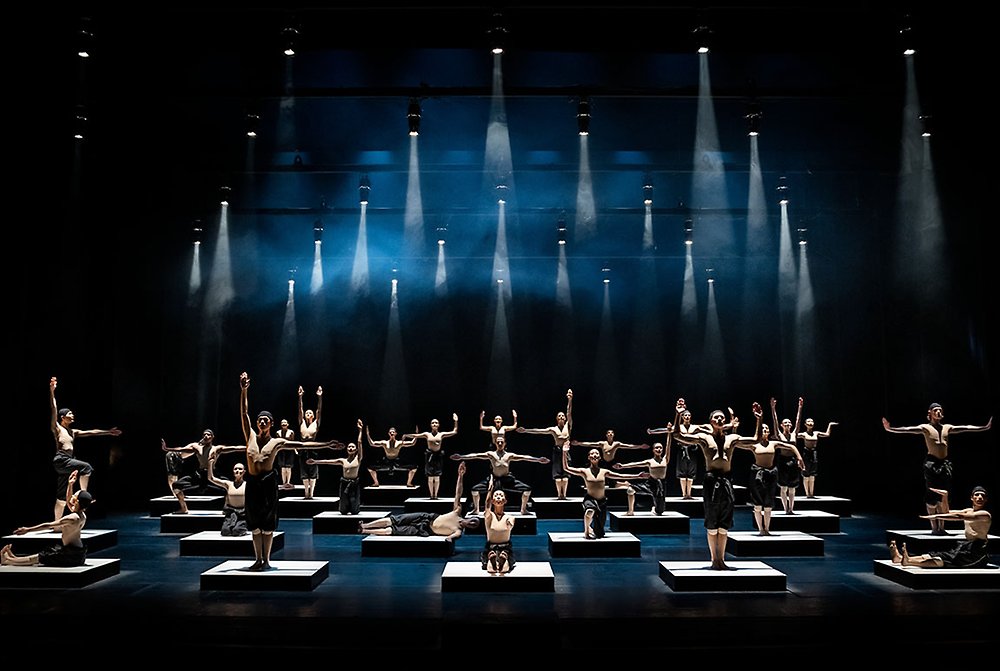
Triple Bill at the Ballet. What's not to Like?
The feel-good factor was in abundance at the Royal Opera House in Stockholm with a triple bill to send the audience home with a smile.
-
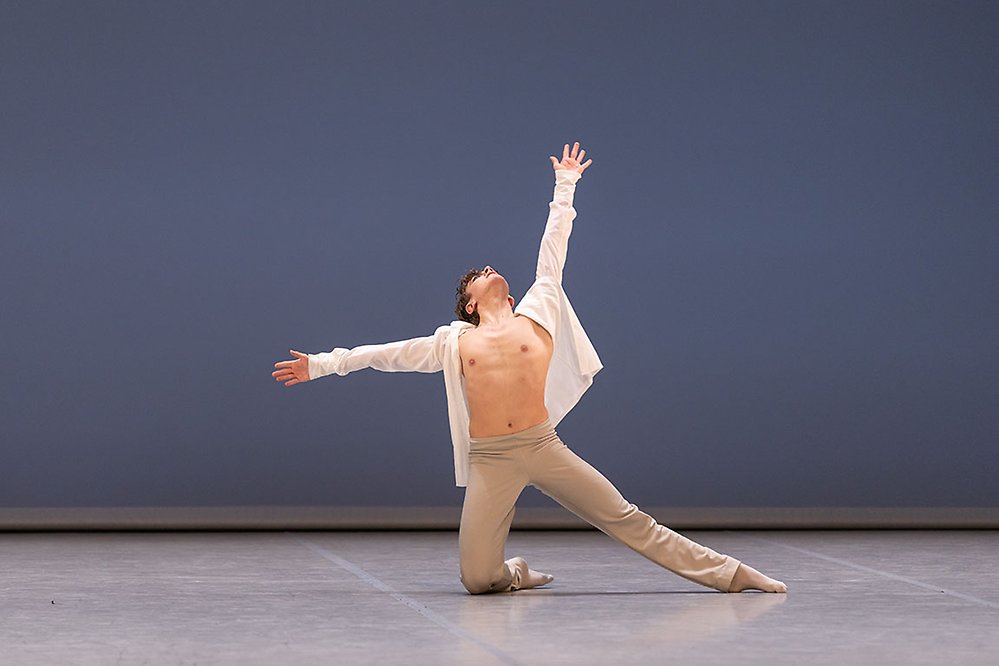
Elever från Kungliga Svenska balettskolan tävlade i årets Prix de Lausanne
Sveriges kandidater i Prix de Lausanne kommer båda två ifrån Kungliga Svenska balettskolan. Theodor Bimer och Alexander Mockrish. Tävlingen firar 50 årsjubileum lite sent då pandemin stoppat ett flert...
-
.jpg)
12 songs + Ane Brun och Kenneth Kvarnström på Göteborgsoperan
Första helgen i februari är det premiär för 12 songs + på Göteborgsoperan. Ett scenkonstverk skapat genom samarbete mellan 18 dansare och en av Nordens främsta koreografer, Kenneth Kvarnström, i något...
Notiser
- Nu finns en danskalender på Dansportalen
- Nytt regionalt center för dans byggs i Mölndal
- Kungliga Operan stänger i fem år från juli 2026
- Premiärdansaren Frans Valkama har tilldelats Edvard Fazer pris av Suomen Kulttuurirahasto (The Finnish Cultural Foundation)
- Kulturnatt Stockholm
- Kulturnatten på Kungliga Operan – en upplevelse för alla sinnen
FÖLJ OSS PÅ
-
Kreativ lyskraft hos GöteborgsOperans Danskompani
GöteborgsOperans danssäsong 2024/2025 blir en virtuos upplevelse med kreativ briljans. Strålkastarljuset riktas mot starka kvinnliga röster och det blir både raffinerade ...
-
Dansarna berör på djupet med sin dansade kyss
Sommaren 2022 turnerade Don't, Kiss .Skånes utomhus i Skåne och Köpenhamn. 23 mars 2024 får föreställningen nypremiär på Skånes Dansteater, denna gång som inomhusverk med...
-
Yoann Bourgeois tillbaka till Göteborgsoperans Danskompani med ett sant styrkeprov
Efter fyra år är det dags igen för den franske koreografen Yoann Bourgeois att återvända till Göteborgsoperans danskompani. Denna gång för verket We loved each other so m...
-
Spot on Darrion Sellman – dancing the leading role Siegfried in Swan Lake
In August last year Darrion Sellman arrived to Stockholm and joined the company. Darrion says: “It has been a change to come to Stockholm. A vibrant city, small but calme...
-
Kalle Wigle nyutnämnd solist vid Staatsballett i Berlin
Dansportalen gratulerar svenske dansaren Kalle Wigle som nyligen utnämnts till solist vid Staatsballett i Berlin.
-
Succéduo skapar nytt efter segertåg i Sverige och Europa
Intervju Hugo Therkelson och Tobias Ulfvebrand
ANNONS
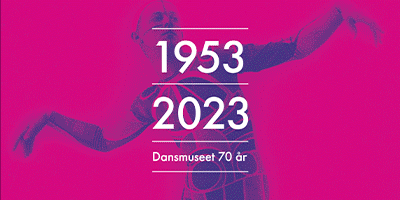
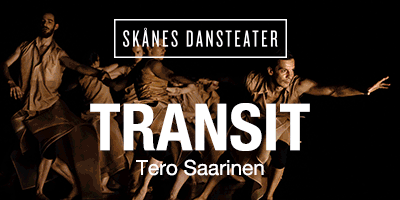
Ur Dansportalens arkiv
-
Nurejevs Svansjön på Stockholmsoperan – en version aldrig tidigare spelad i Sverige
Inför Kungliga Balettens premiär på Svansjön i koreografi av Rudolf Nurejev gästades Operans Balettklubb av iscensättaren Charles Jude och dansaren Calum Lowden.Charles J...
ANNONS
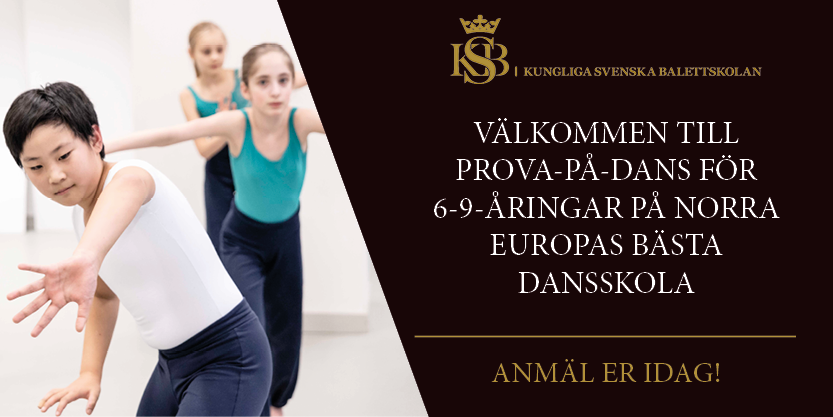
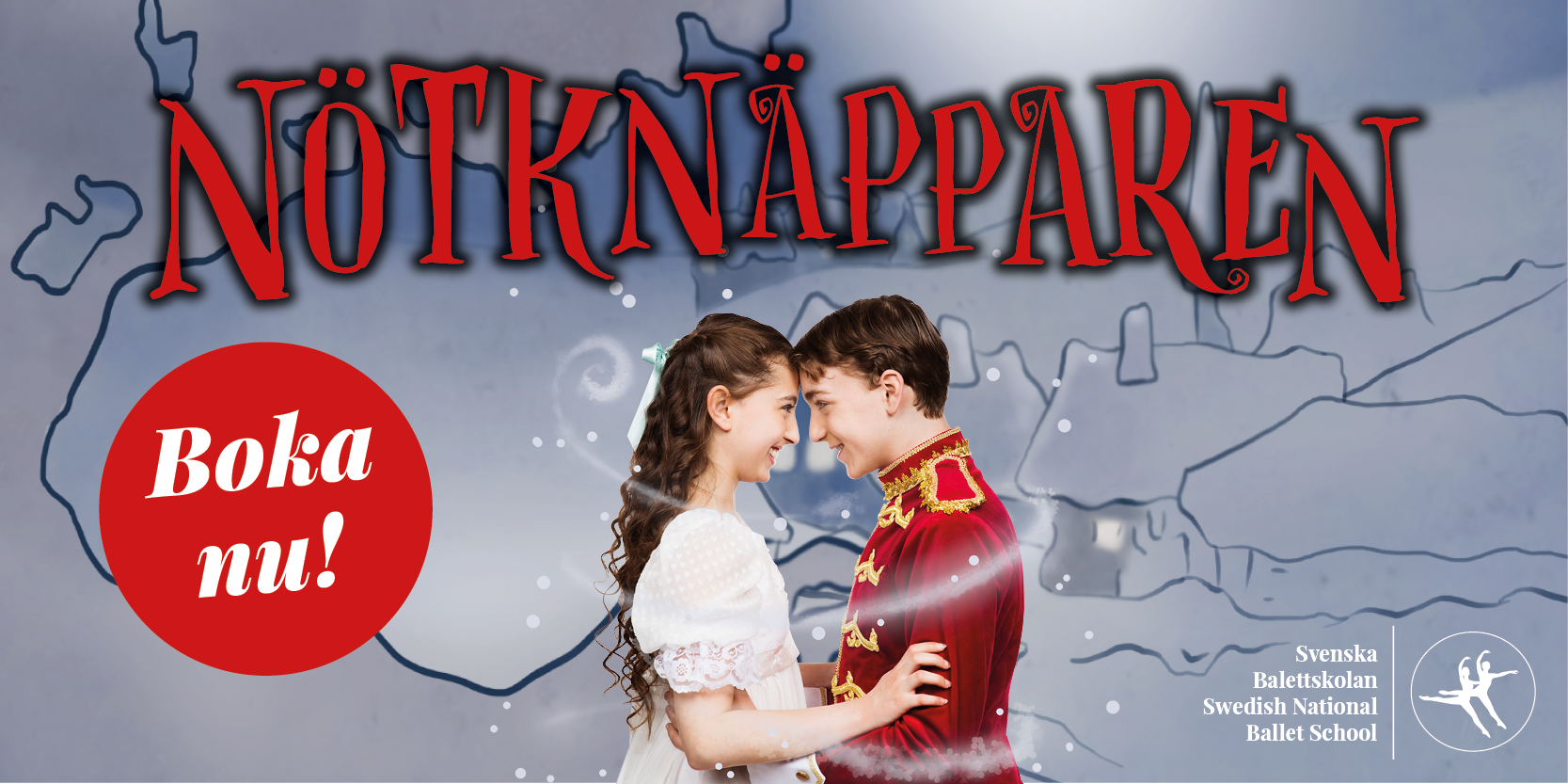
-
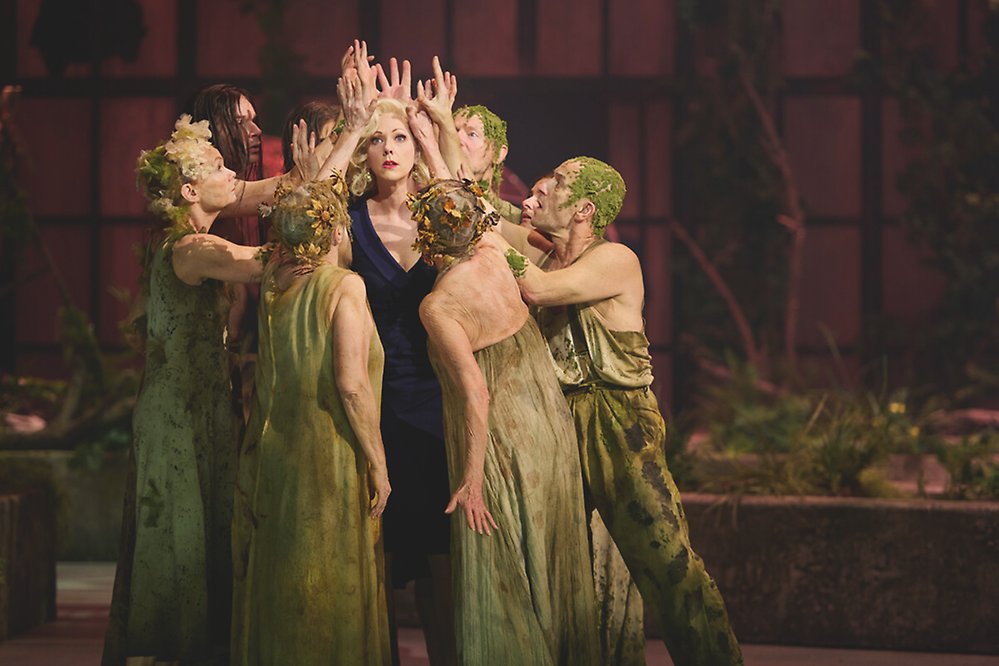
40 år senare: En dansares triumf över tidens utmaningar
-
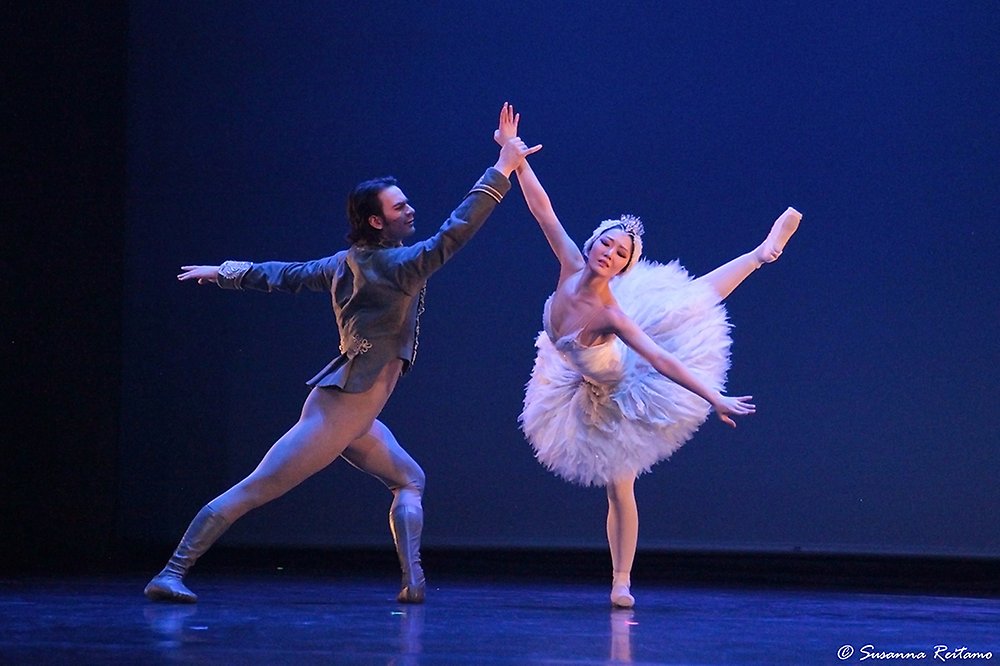
Fart och kunnande på Pro Dance Galan 2024
-
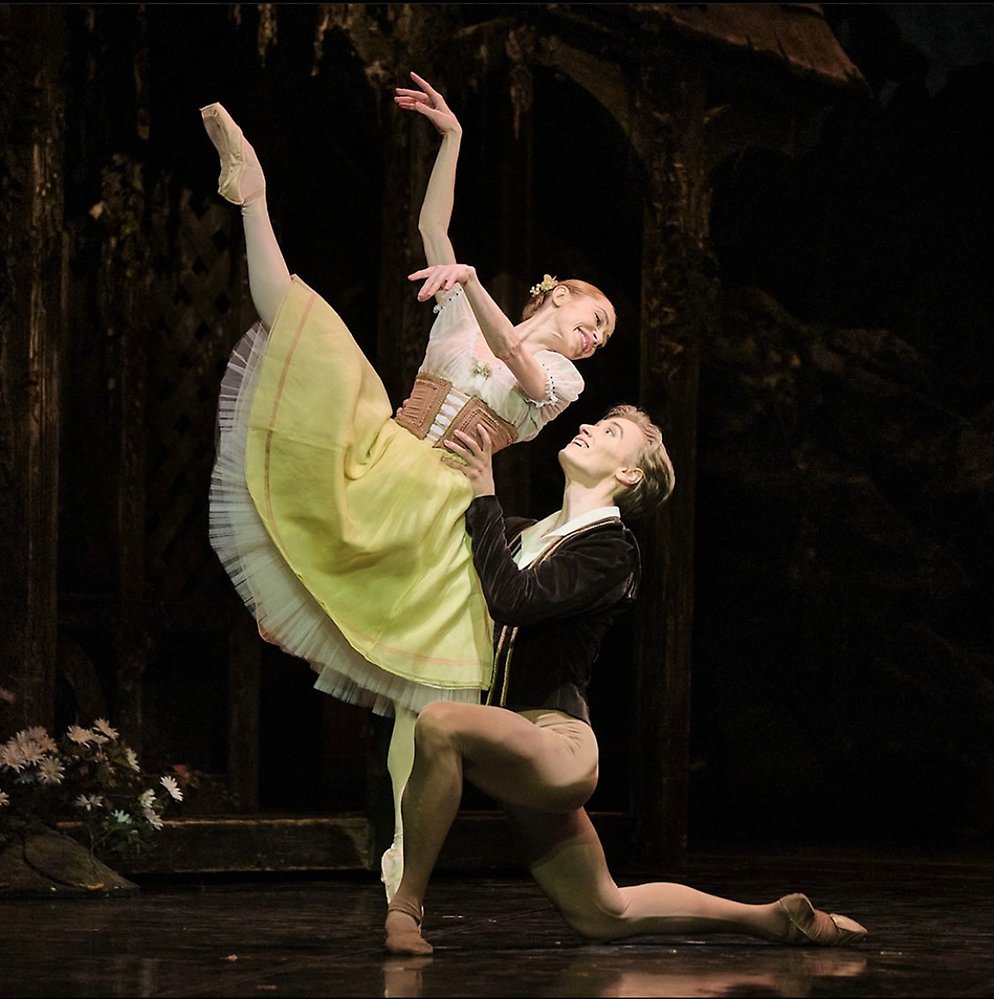
Svenske dansaren Kalle Wigle har stora framgångar i Berlin
-
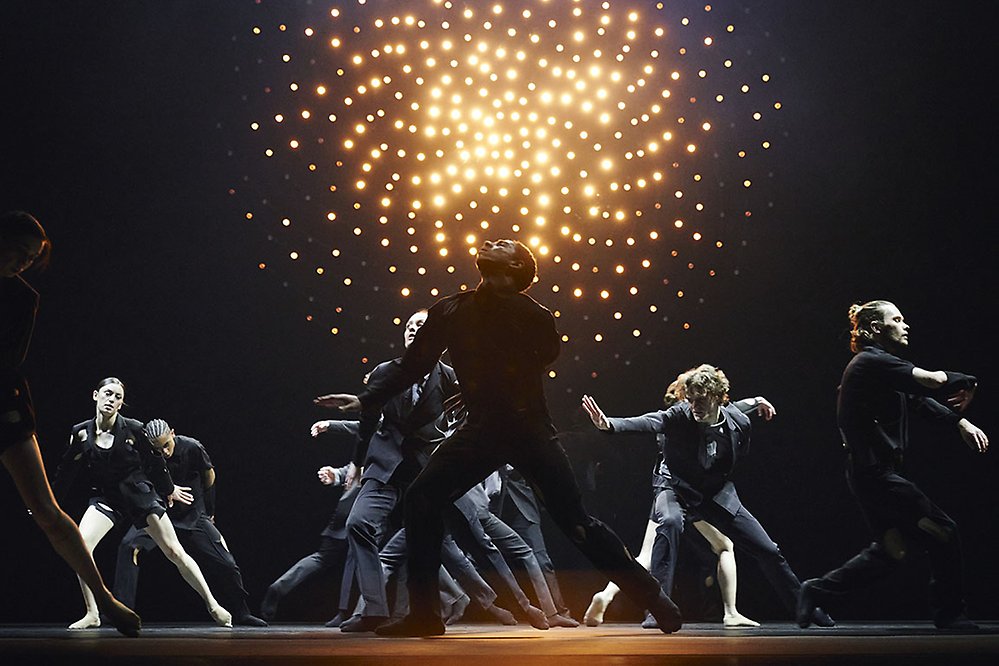
Timulak/Portner två olika verk men med flera beröringspunkter
-
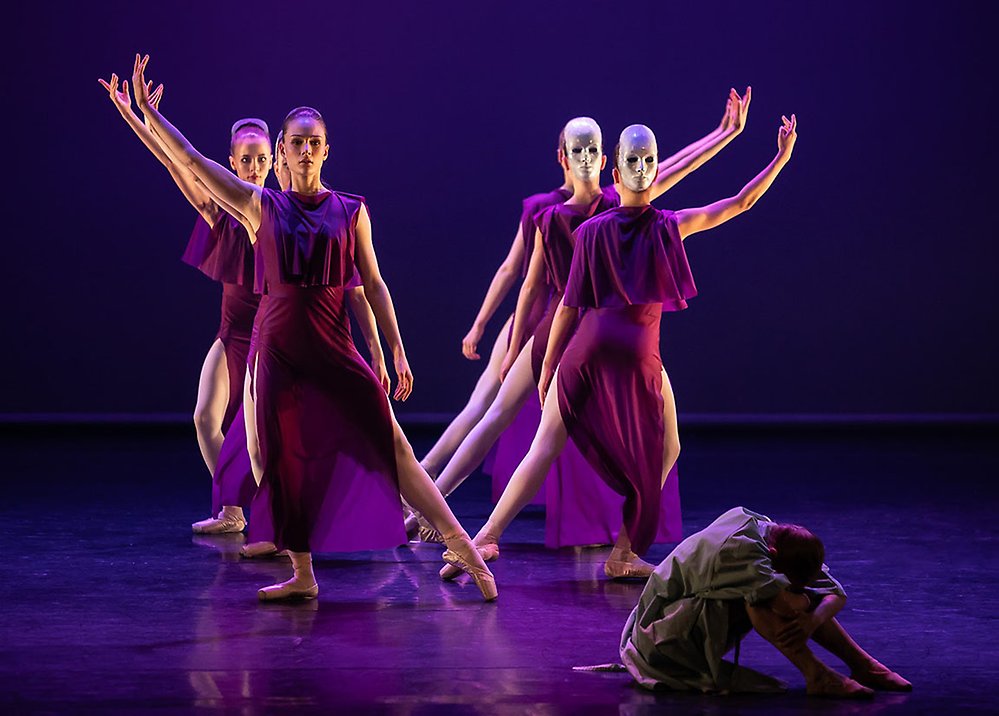
På jakt efter det fullkomliga: nationens skickligaste dansare och – smultron!
-
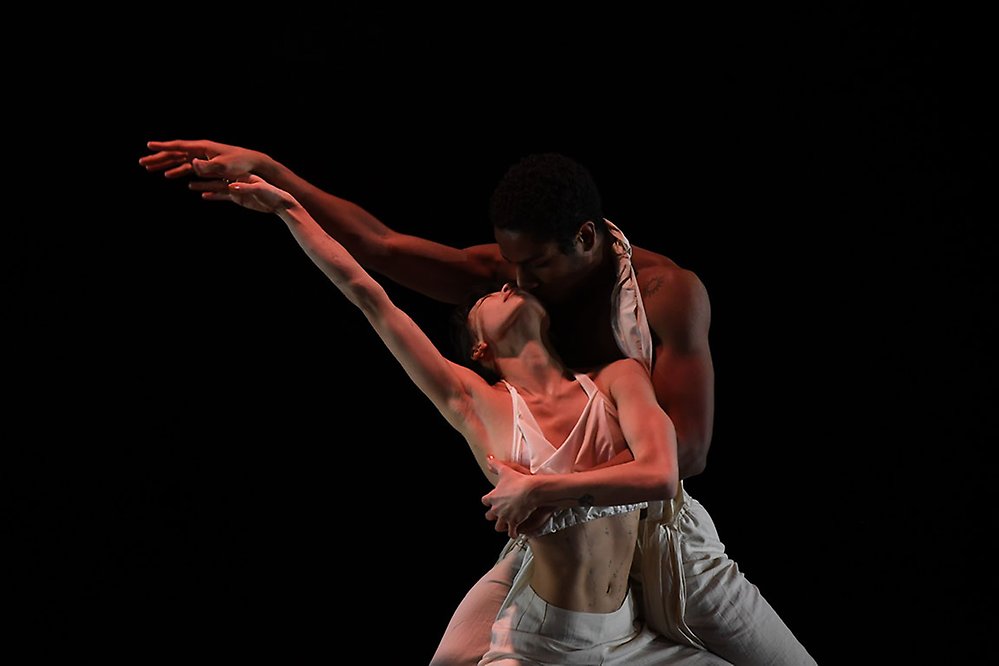
Young Choreographers en föreställning där dansare från Kungliga Operan koreograferar
-
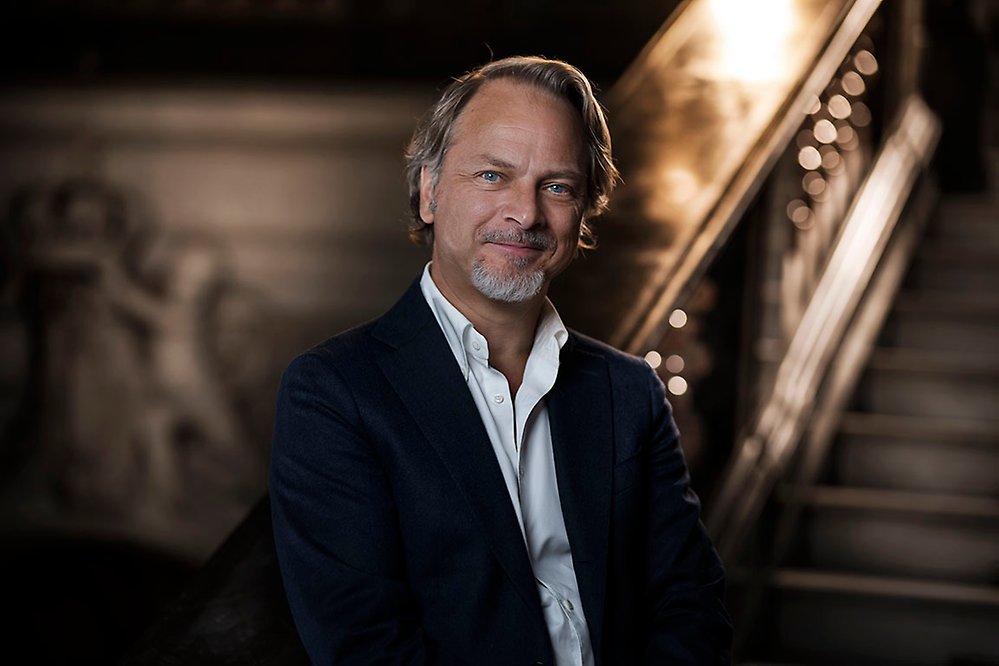
Operans VD Fredrik Lindgren: På sikt vore det fantastiskt att få ett nytt Operahus i Stockholm
-
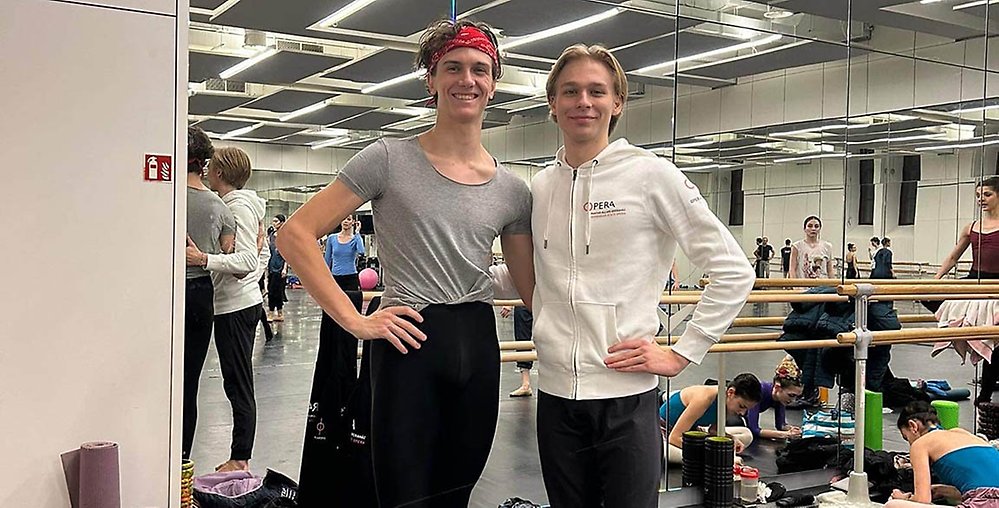
Från Svenska balettskolan i Göteborg till ungerska Statsoperan i Budapest
-
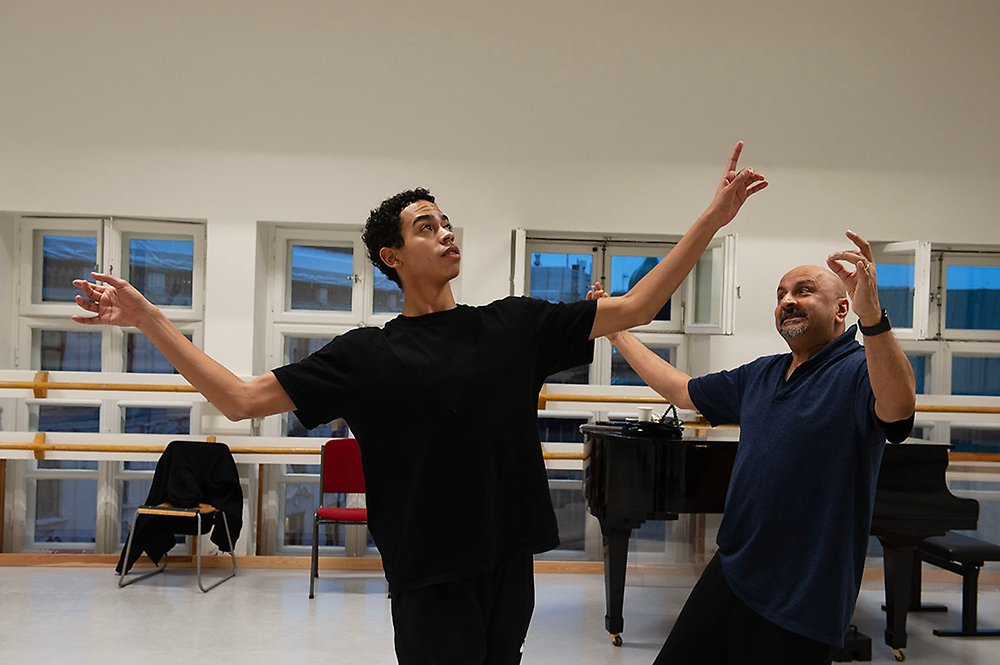
Joseph Sturdys verk Lucid Episode inleder nyårsgalan på Kungliga Operan
-
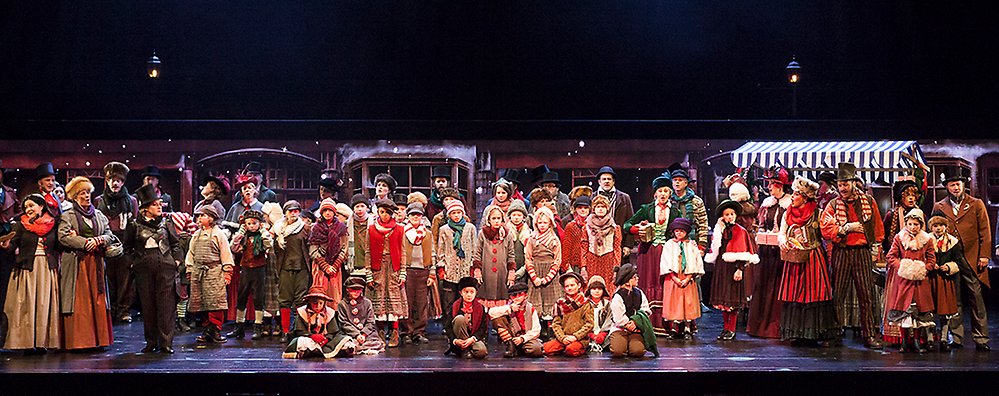
Göteborgsoperan sjunger in julen med En Julsaga
-
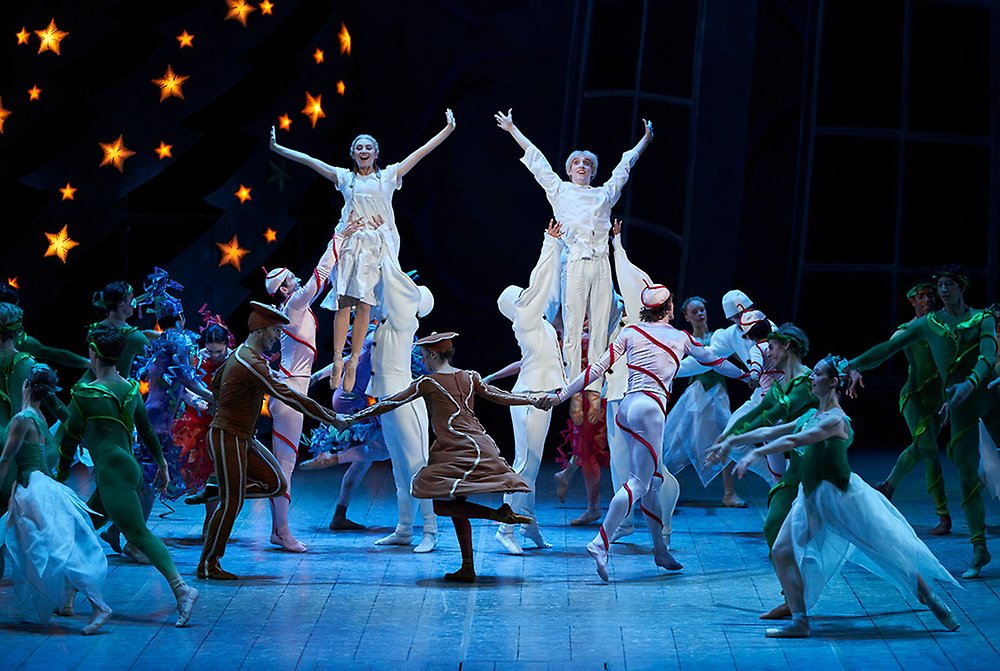
Nötknäpparen, nypremiär på Kungliga Operan i Stockholm efter fyra års uppehåll
-
Giovanni Bucchieri – en konstnärlig kameleont
-
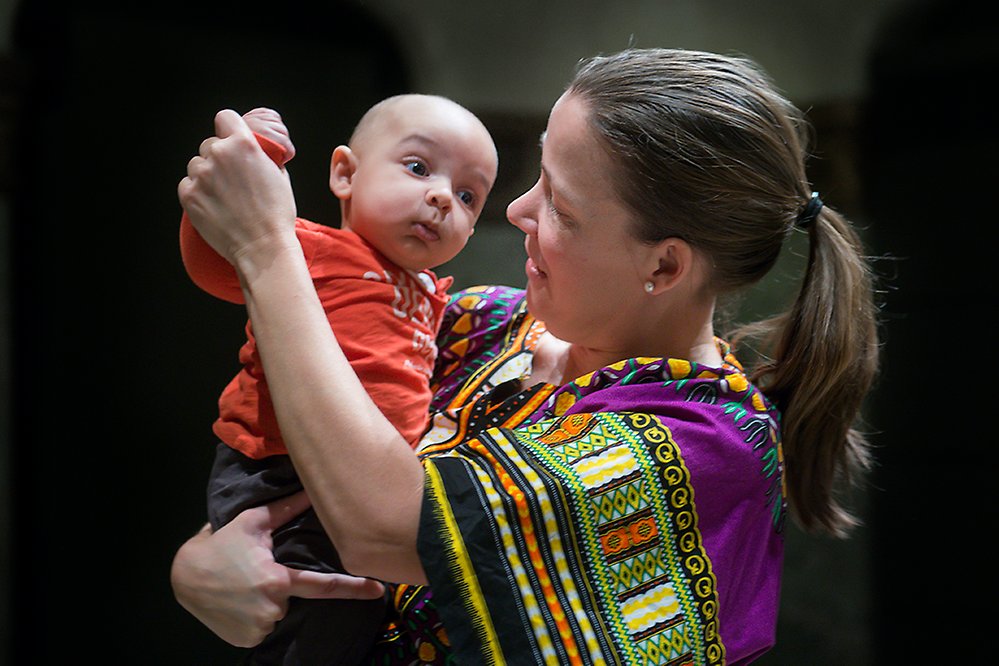
”Mycket talar för att vi inte kommer att kunna vara kvar där vi är nu,” säger Hans Lindholm Öjmyr, ny chef för Dansmuseet
-
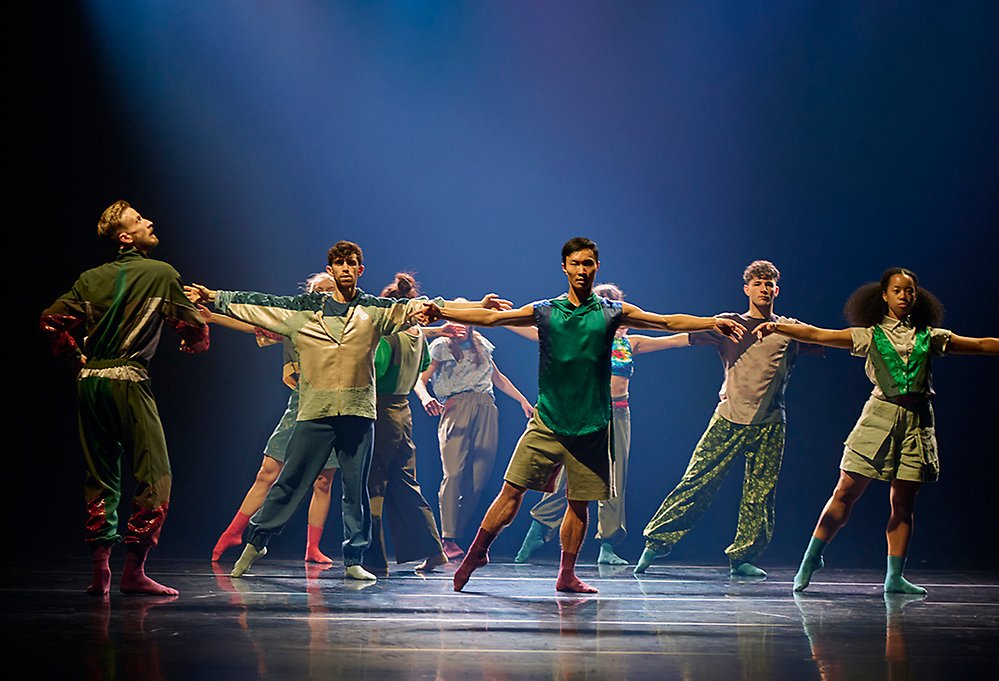
In a heartbeat, ny världspremiär på Göteborgsoperan
-
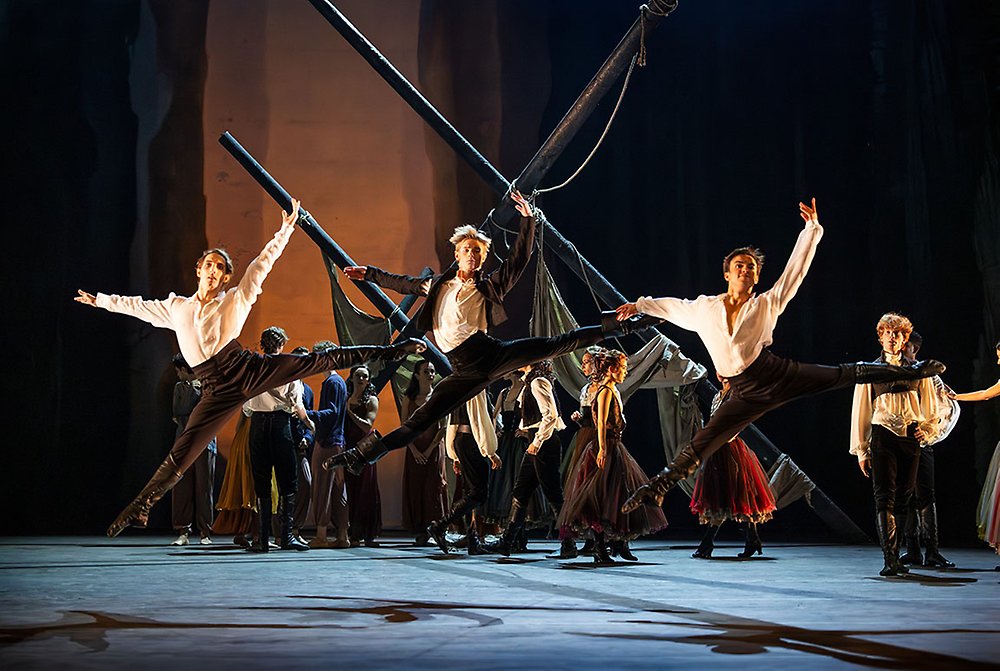
Le Corsaire, svensk premiär på Kungliga Operan med virtuos dans och teknisk skicklighet
-
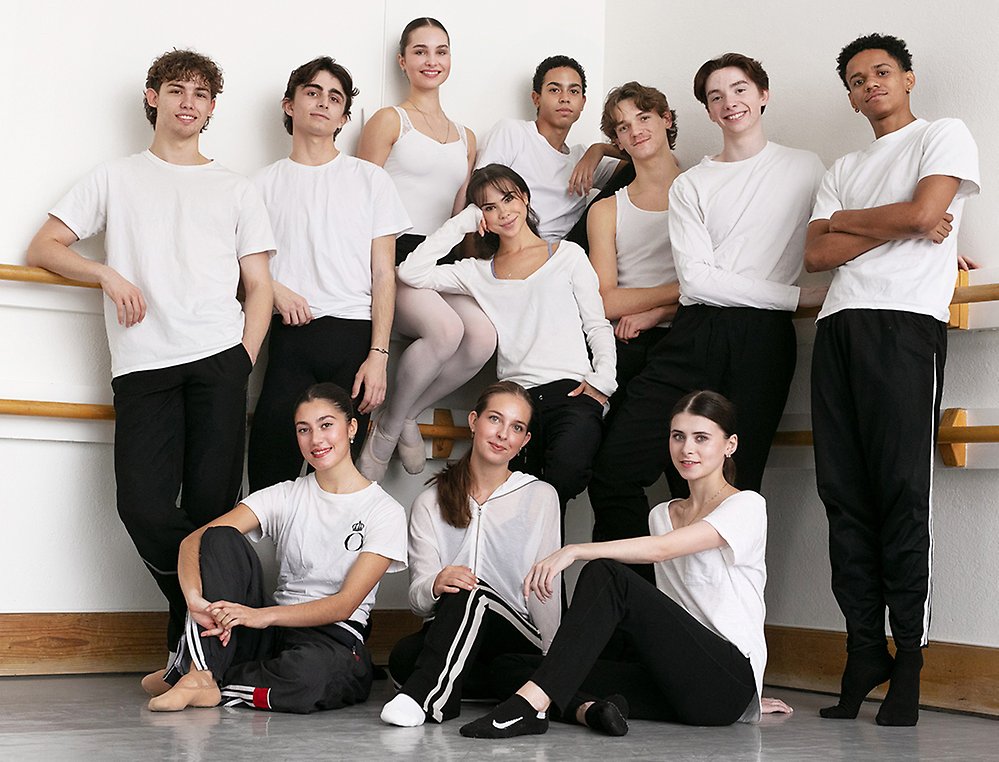
New talents join the Royal Swedish Ballet
-
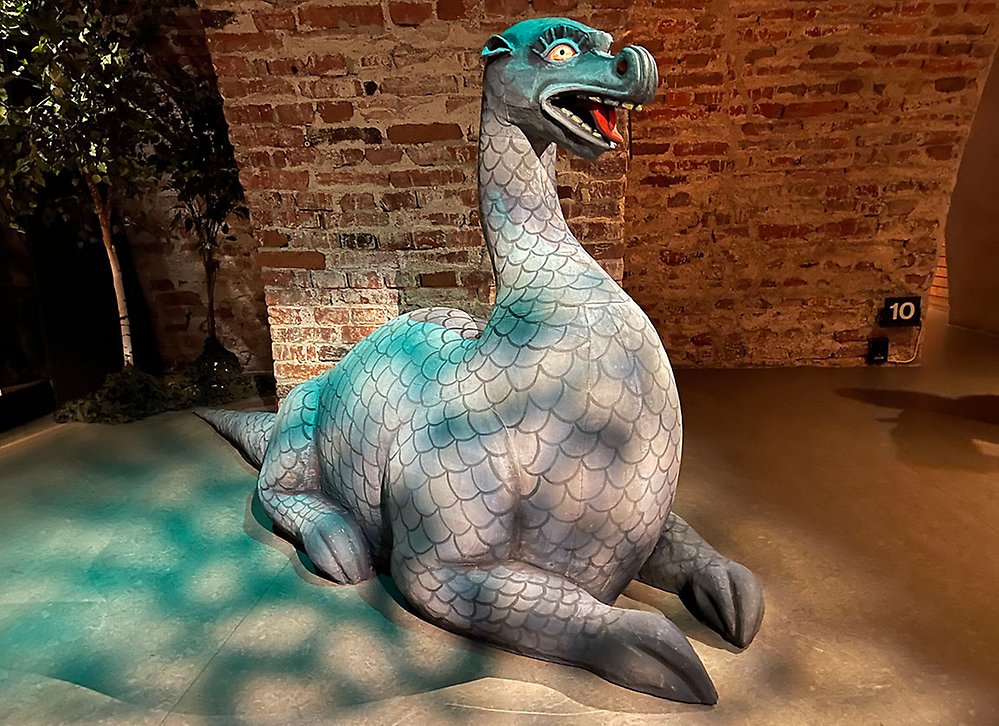
Där låg onekligen ett skimmer över Gustavs dagar
-
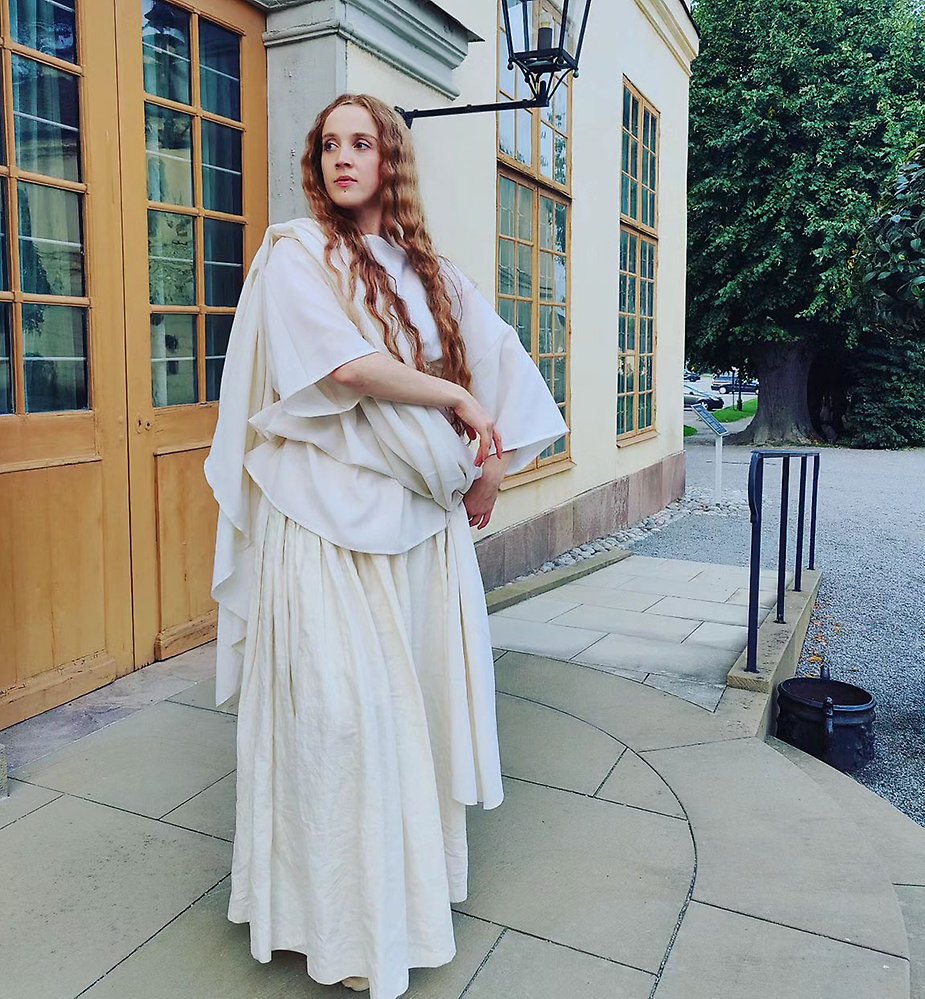
Attityder som uppskattades
-
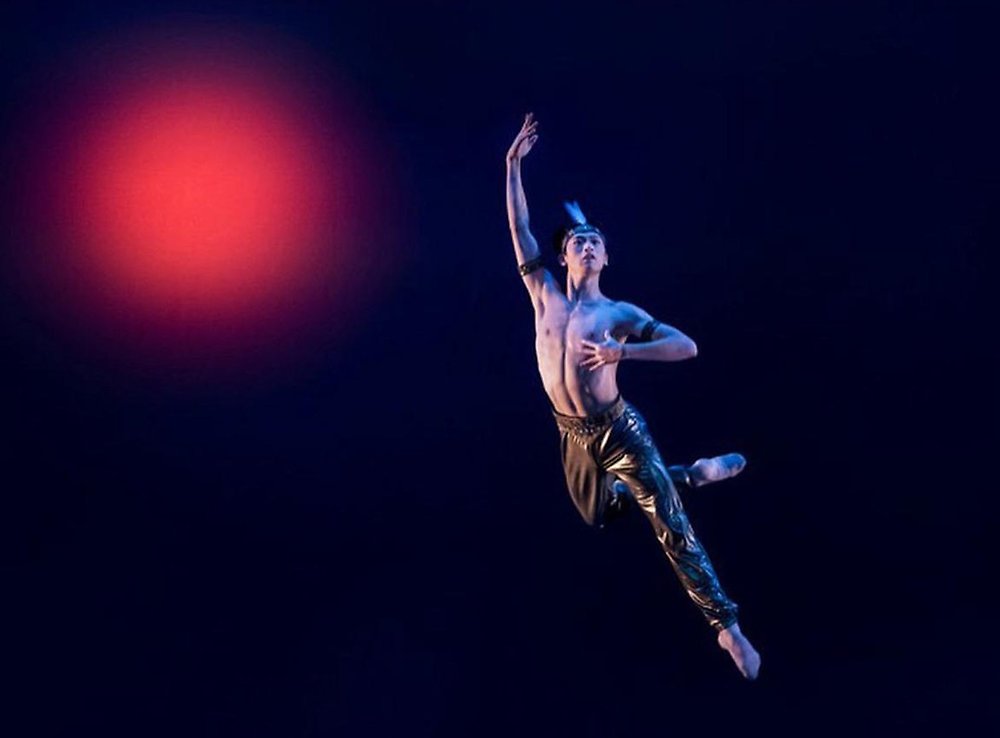
Spot-on Kentaro Mitsumori, dancer with the Royal Swedish Ballet
-
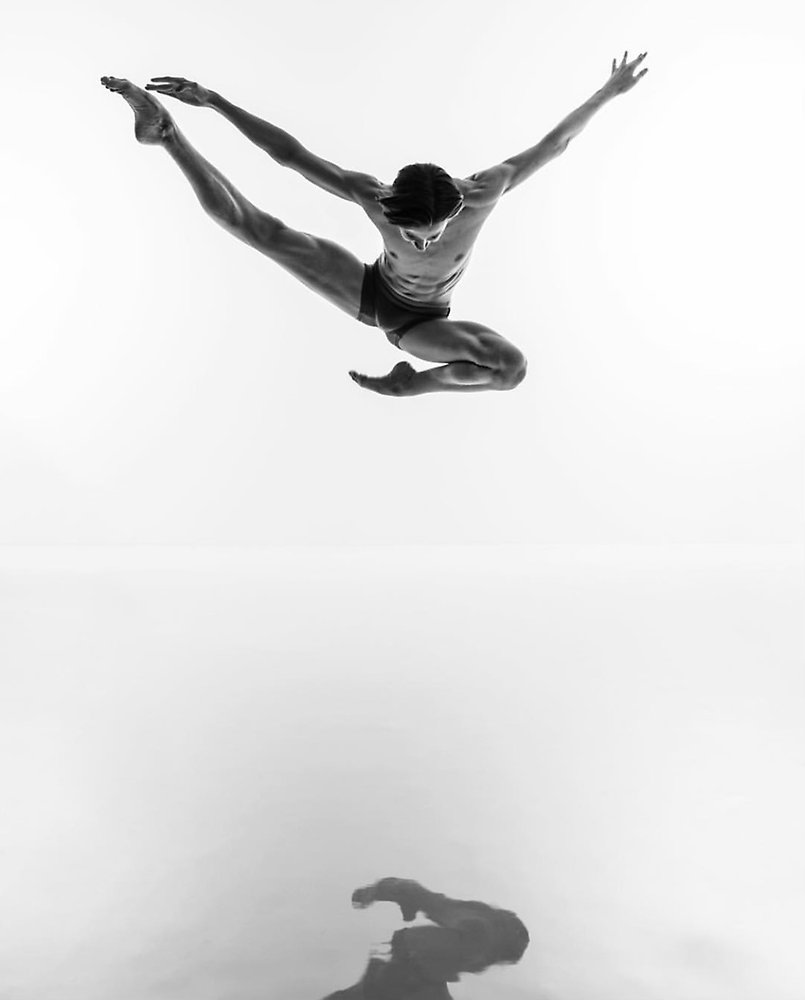
Kalle Wigle-Andersson får stipendium från Jubelfonden
Redaktion
dansportalen@gmail.com
Annonsera
dansportalen@gmail.com
Grundad 1995. Est. 1995
Powered by
SiteVision





